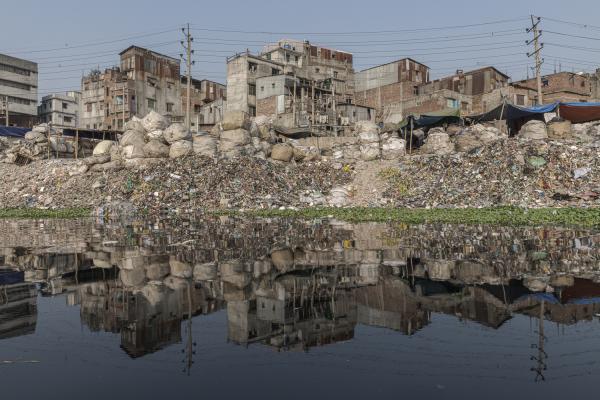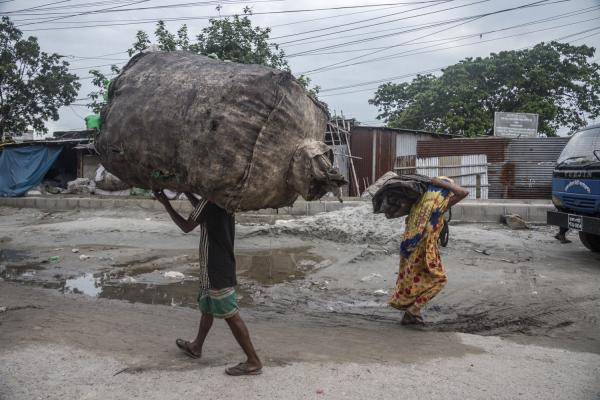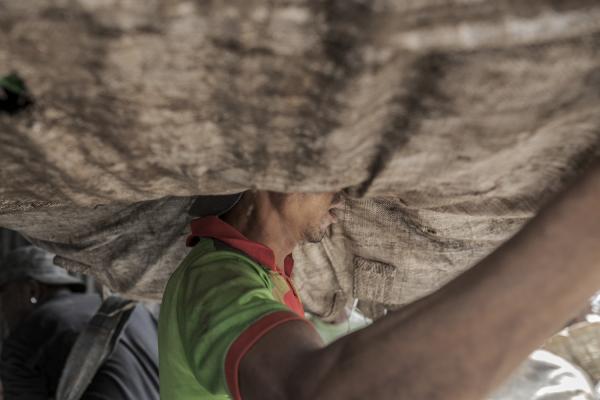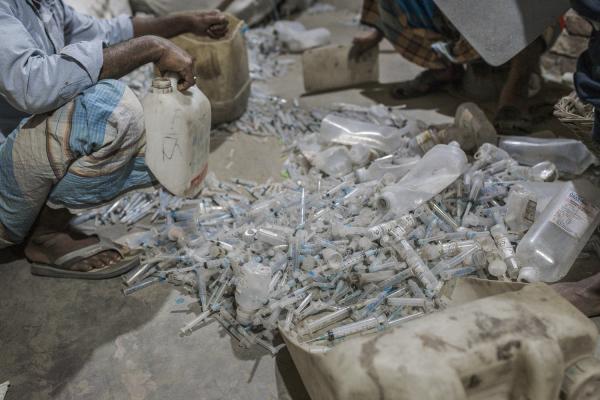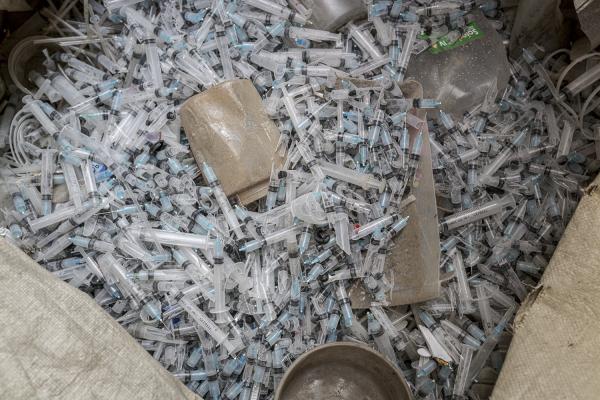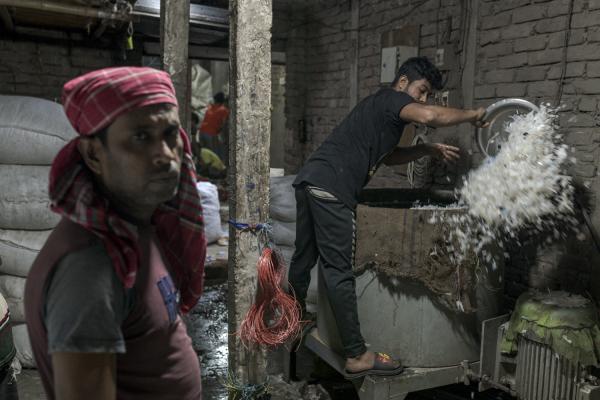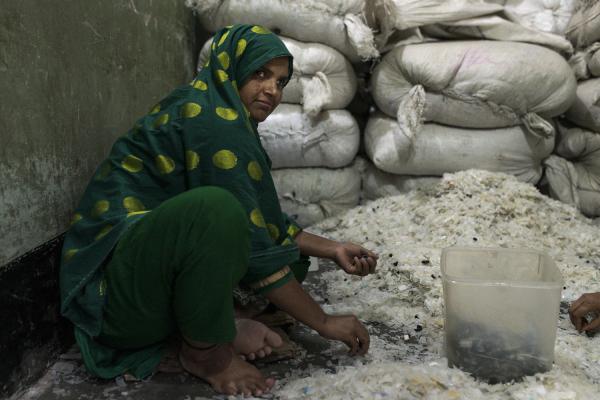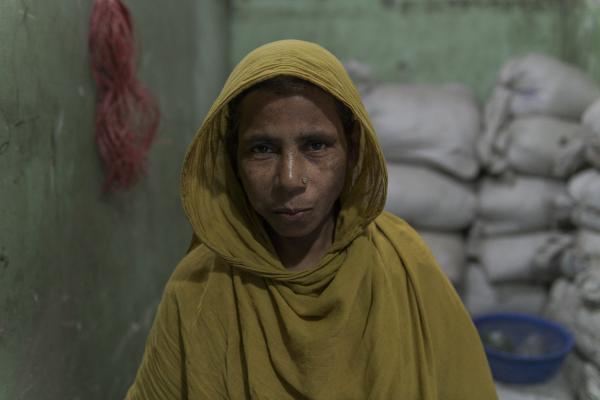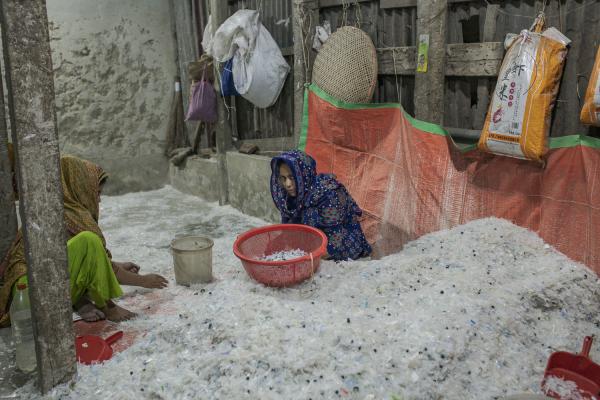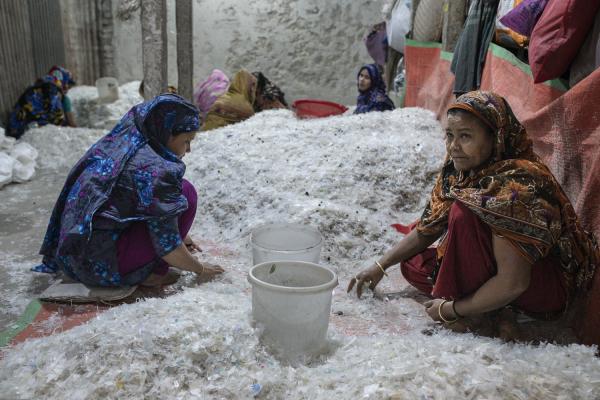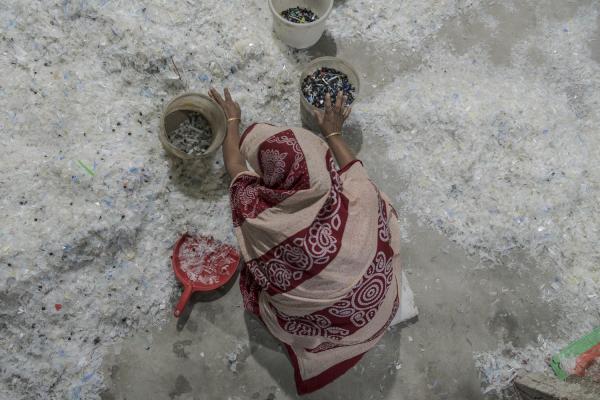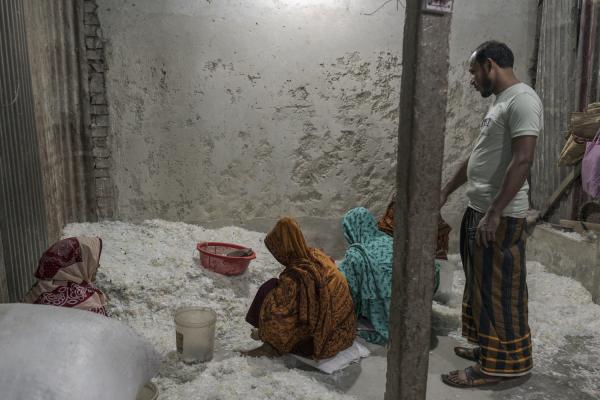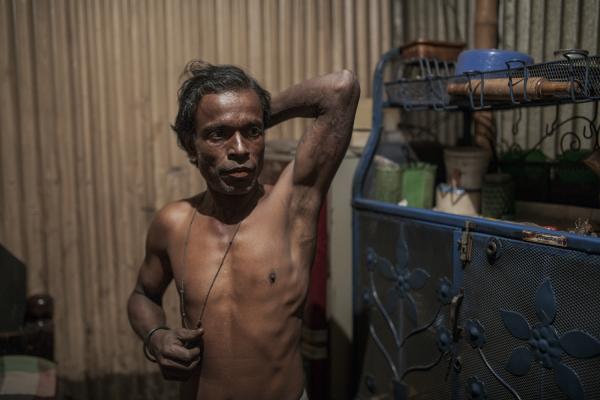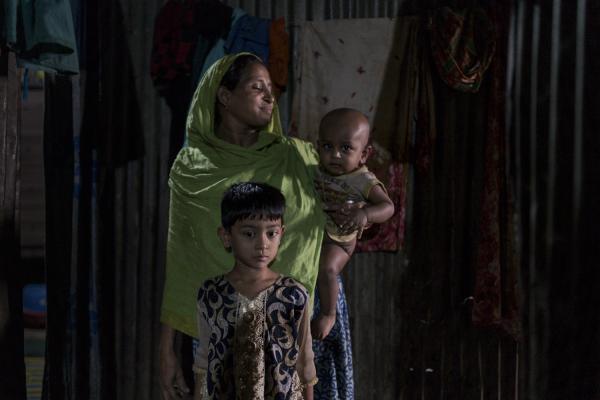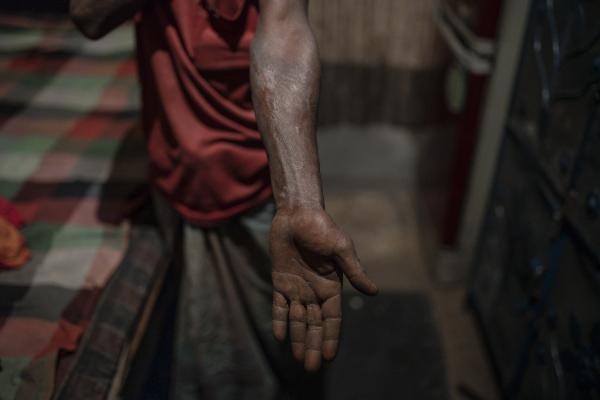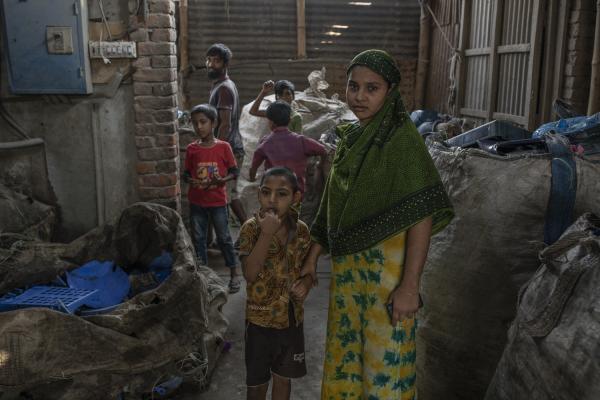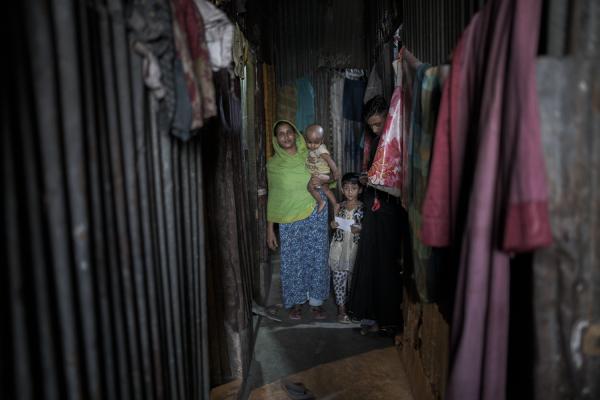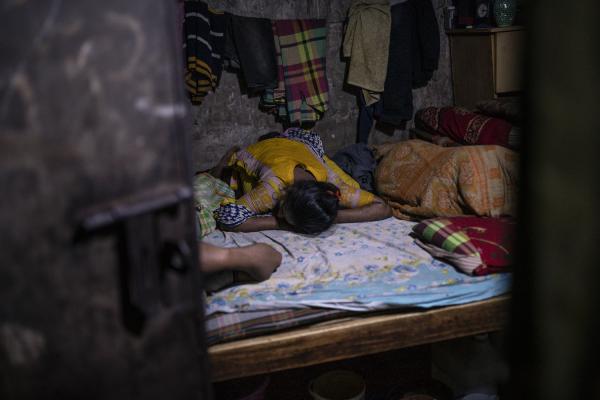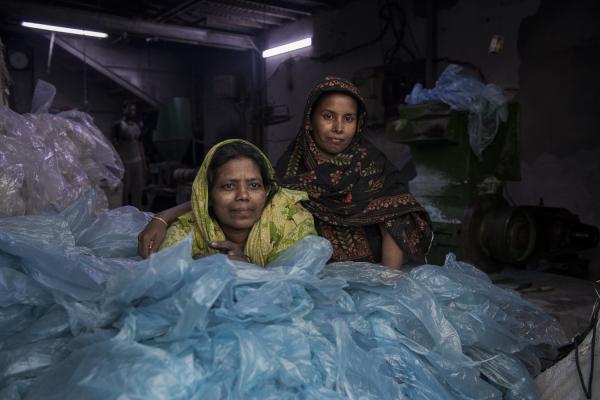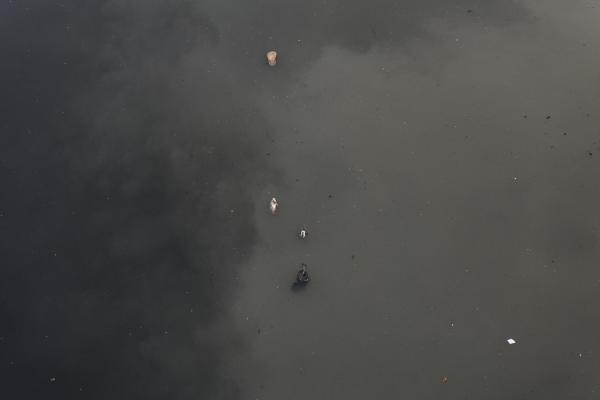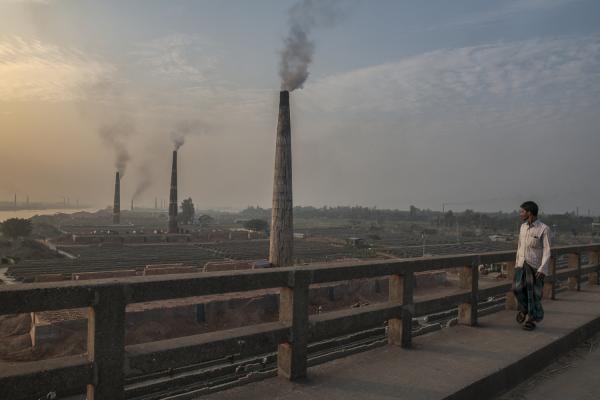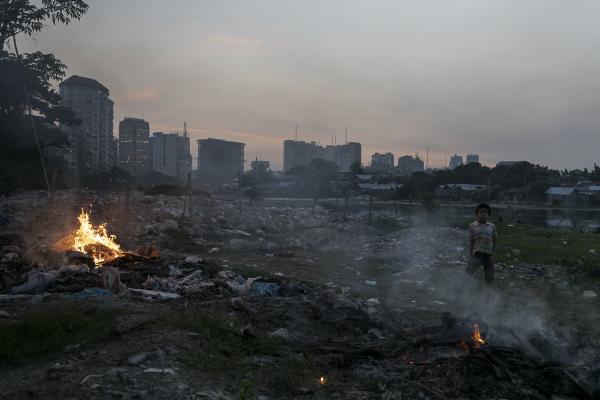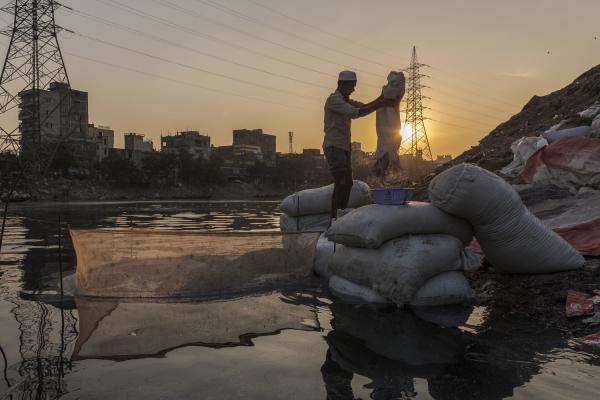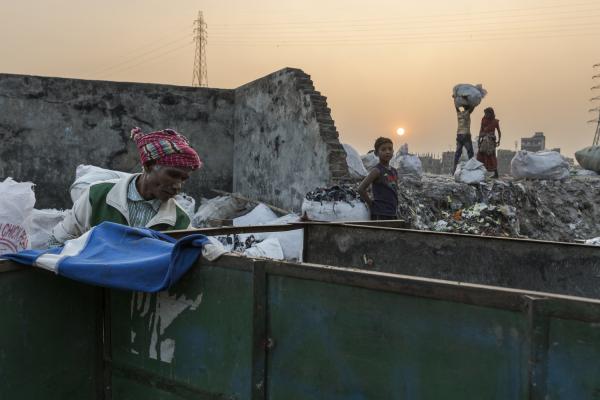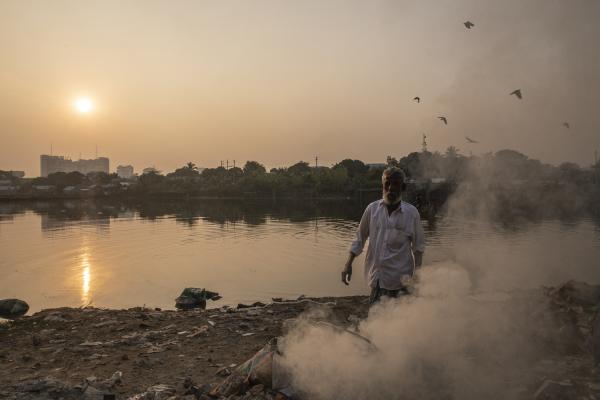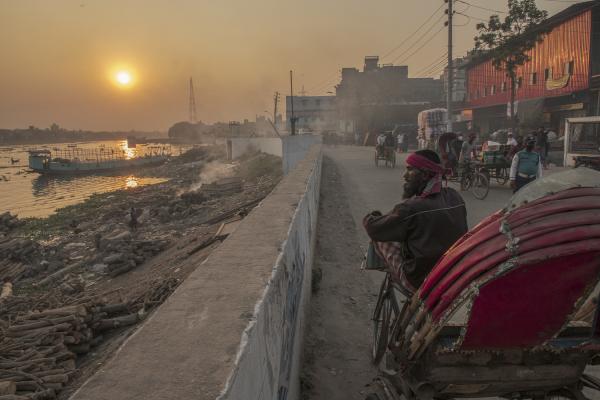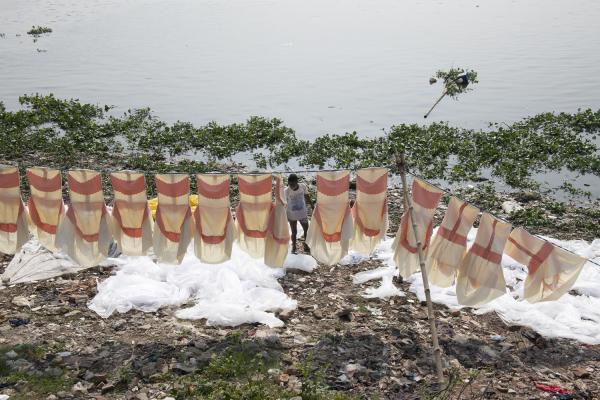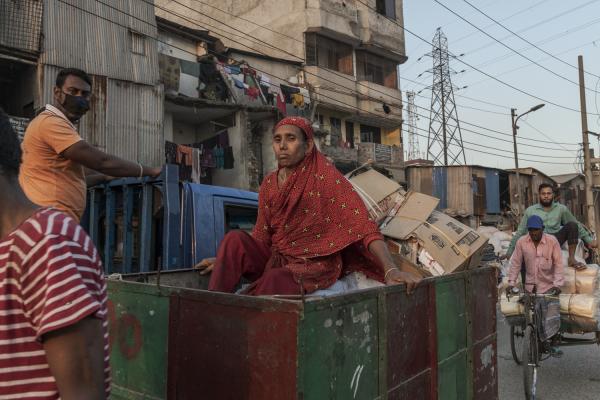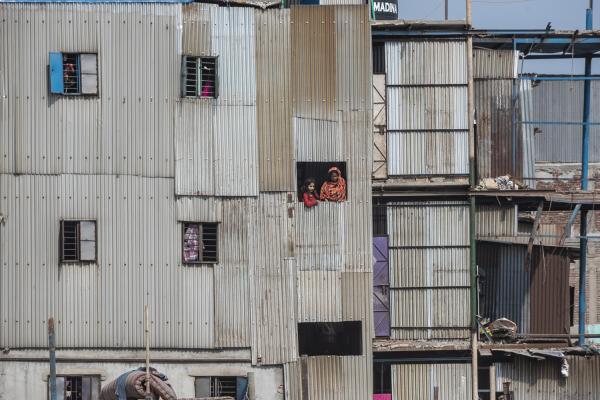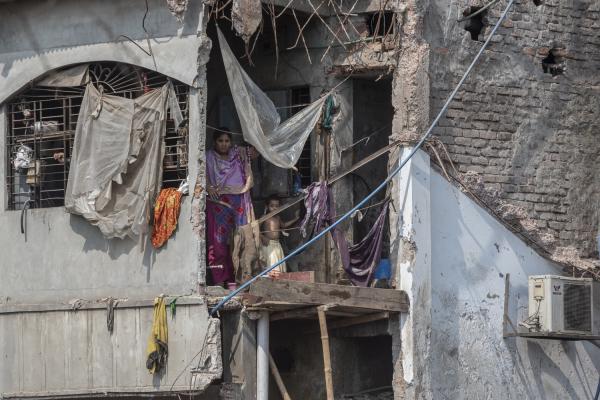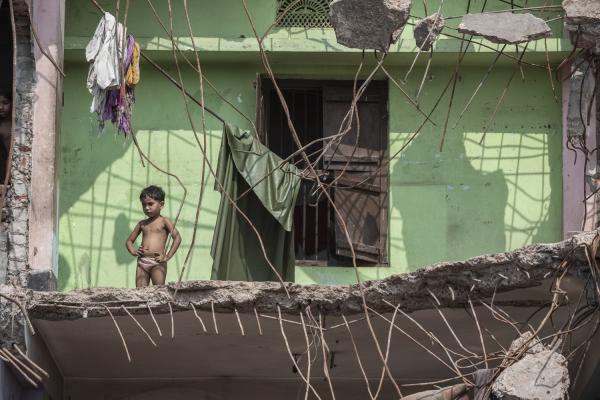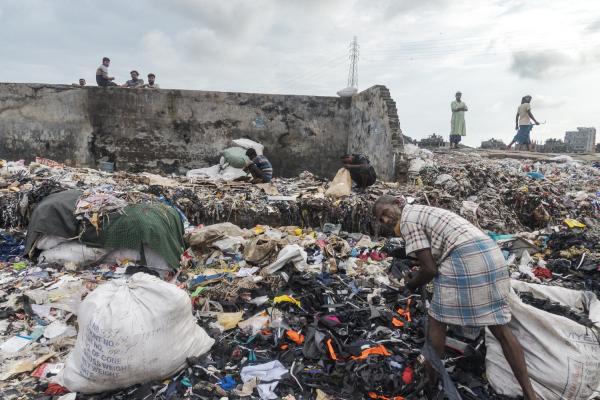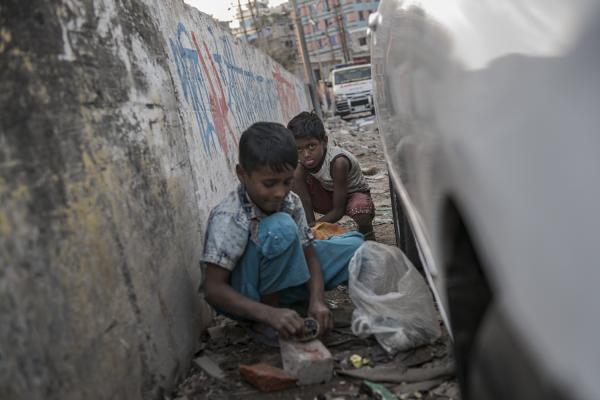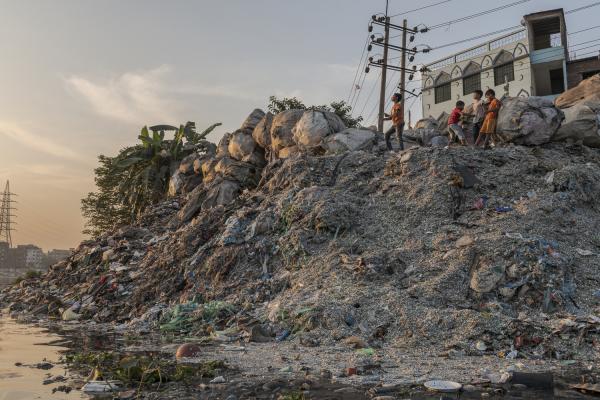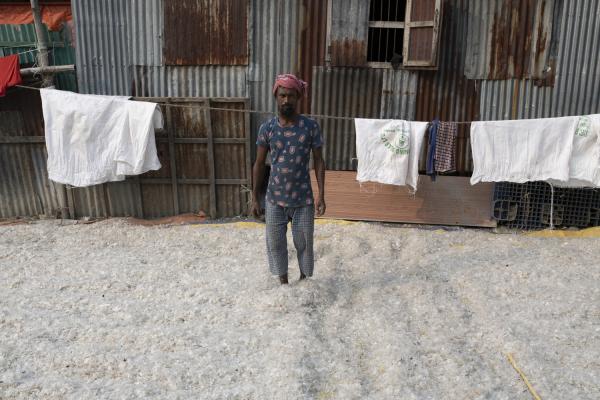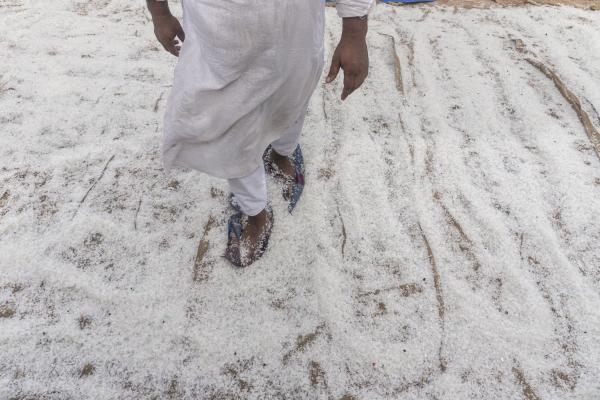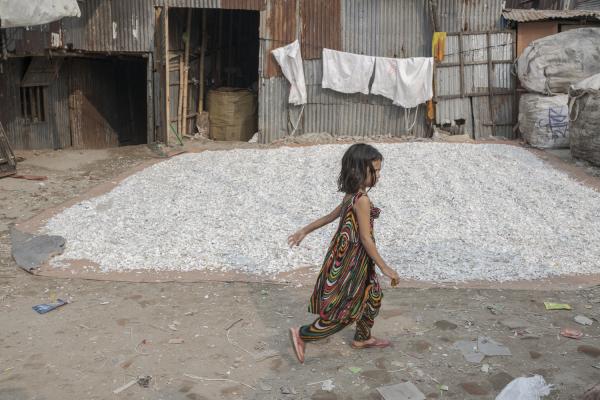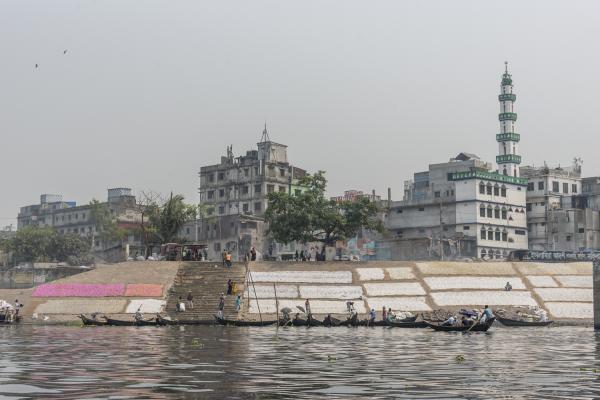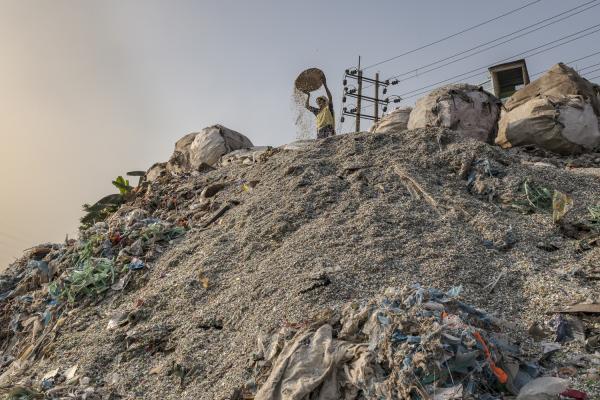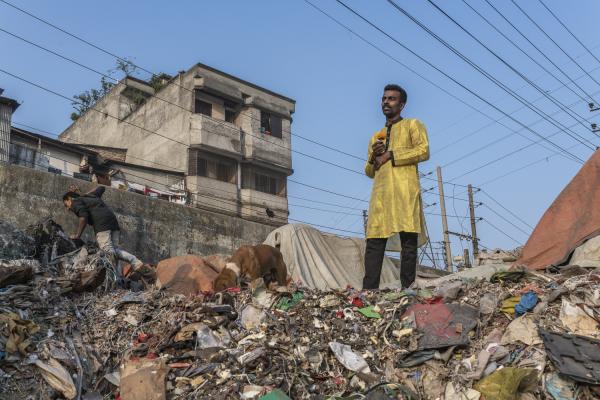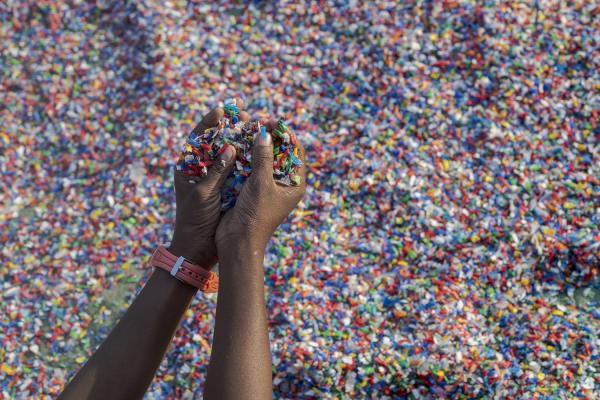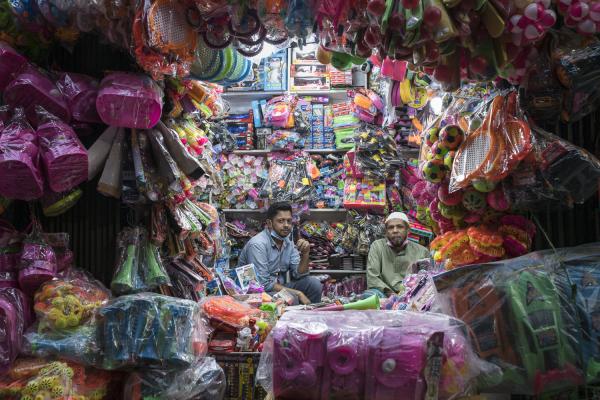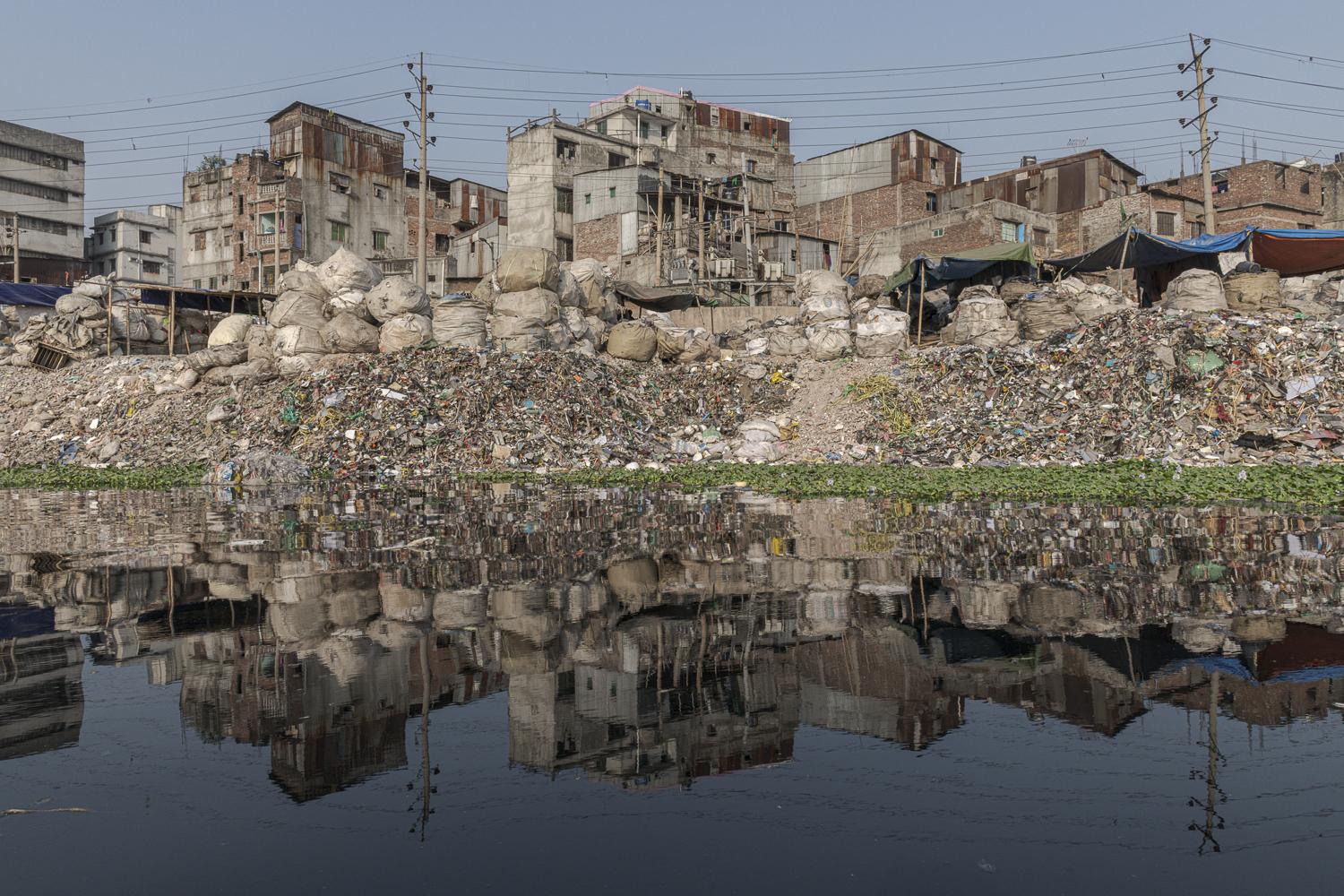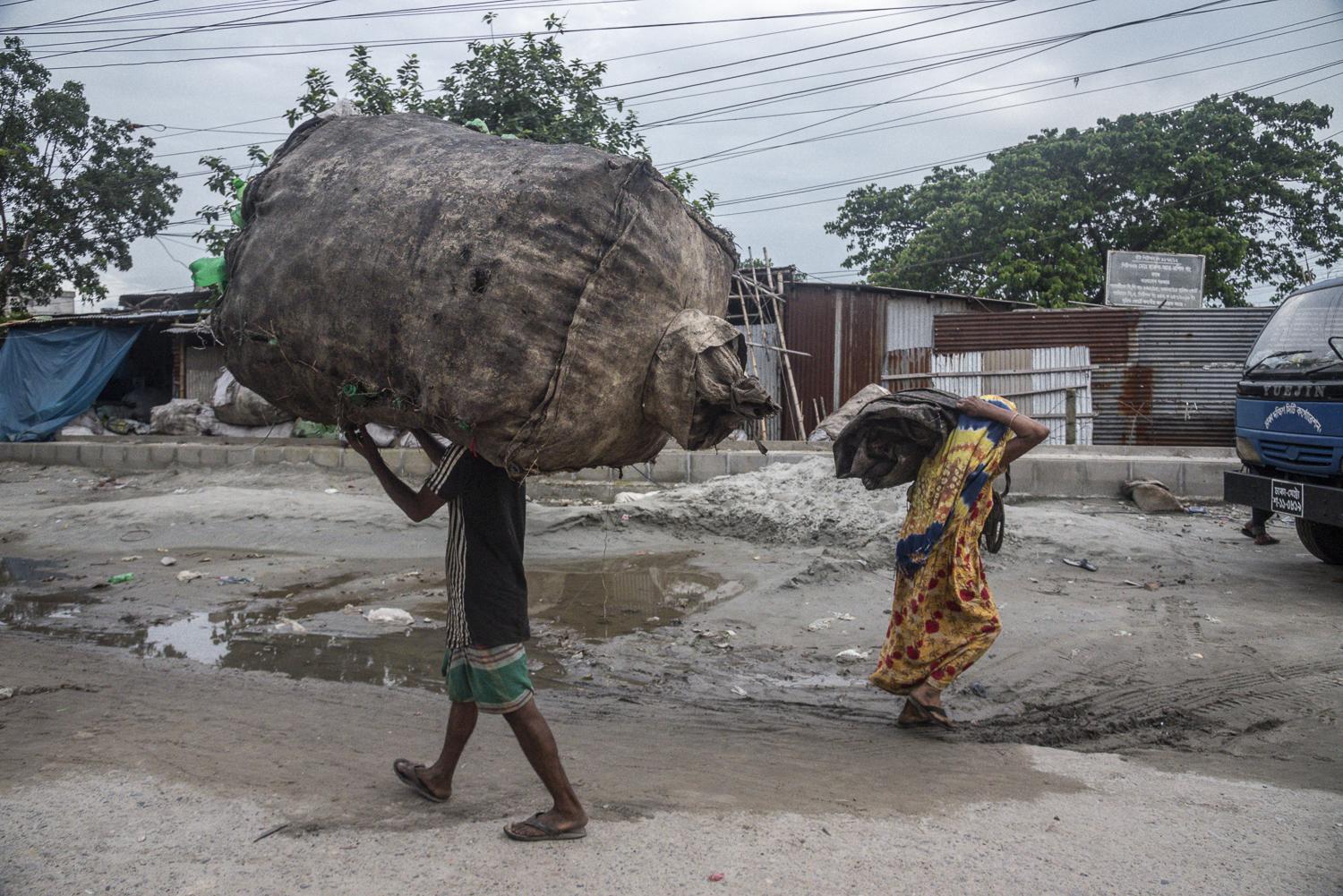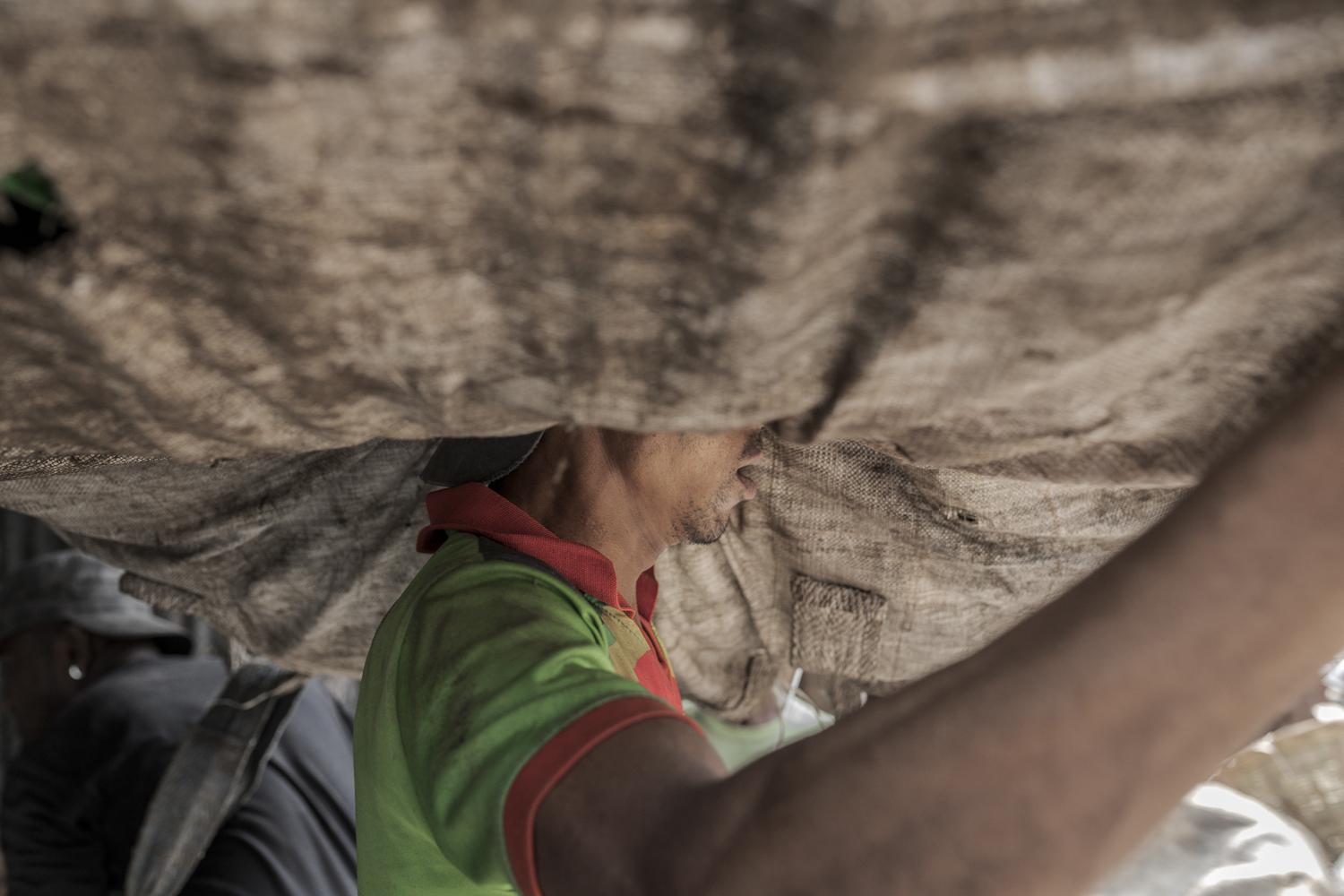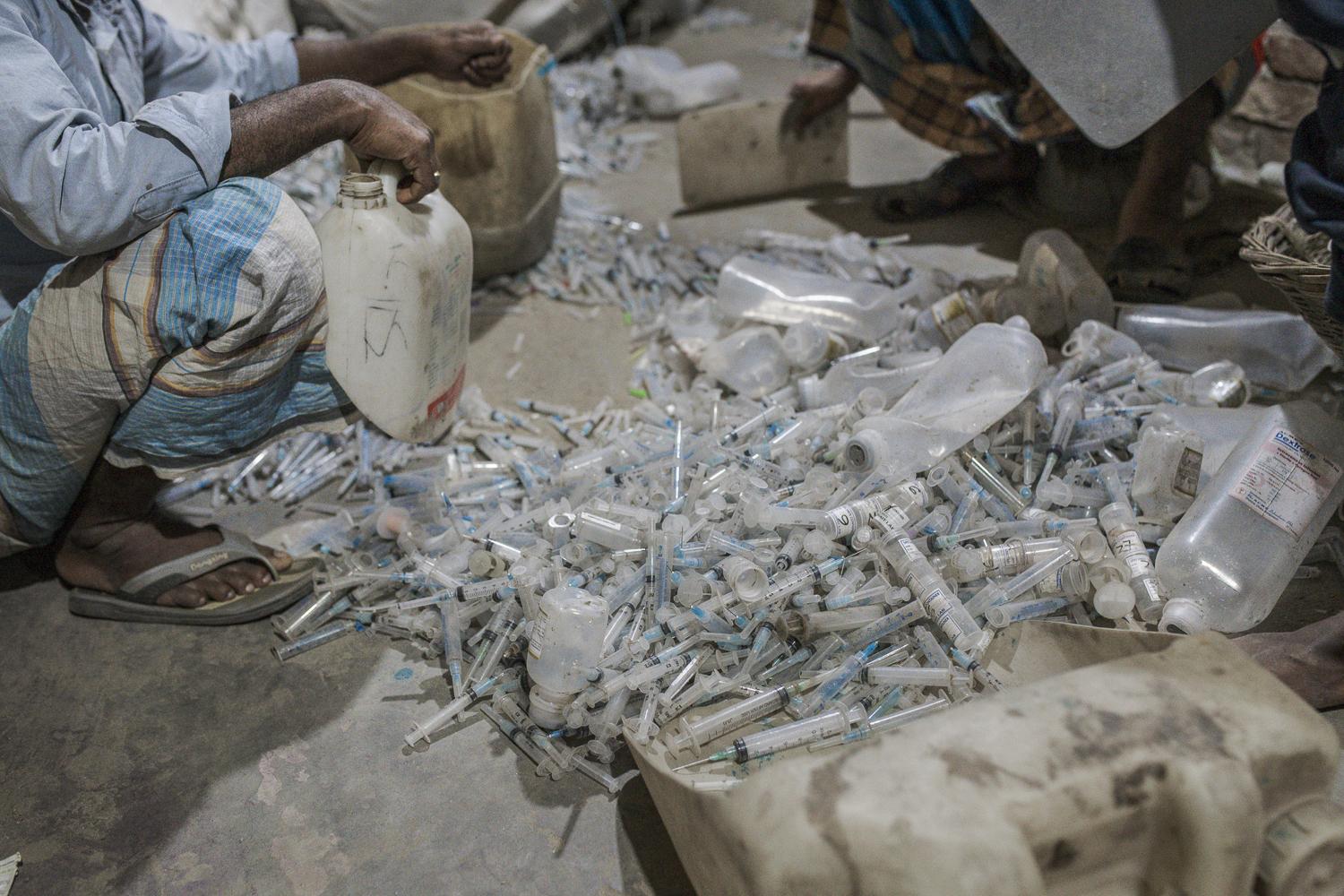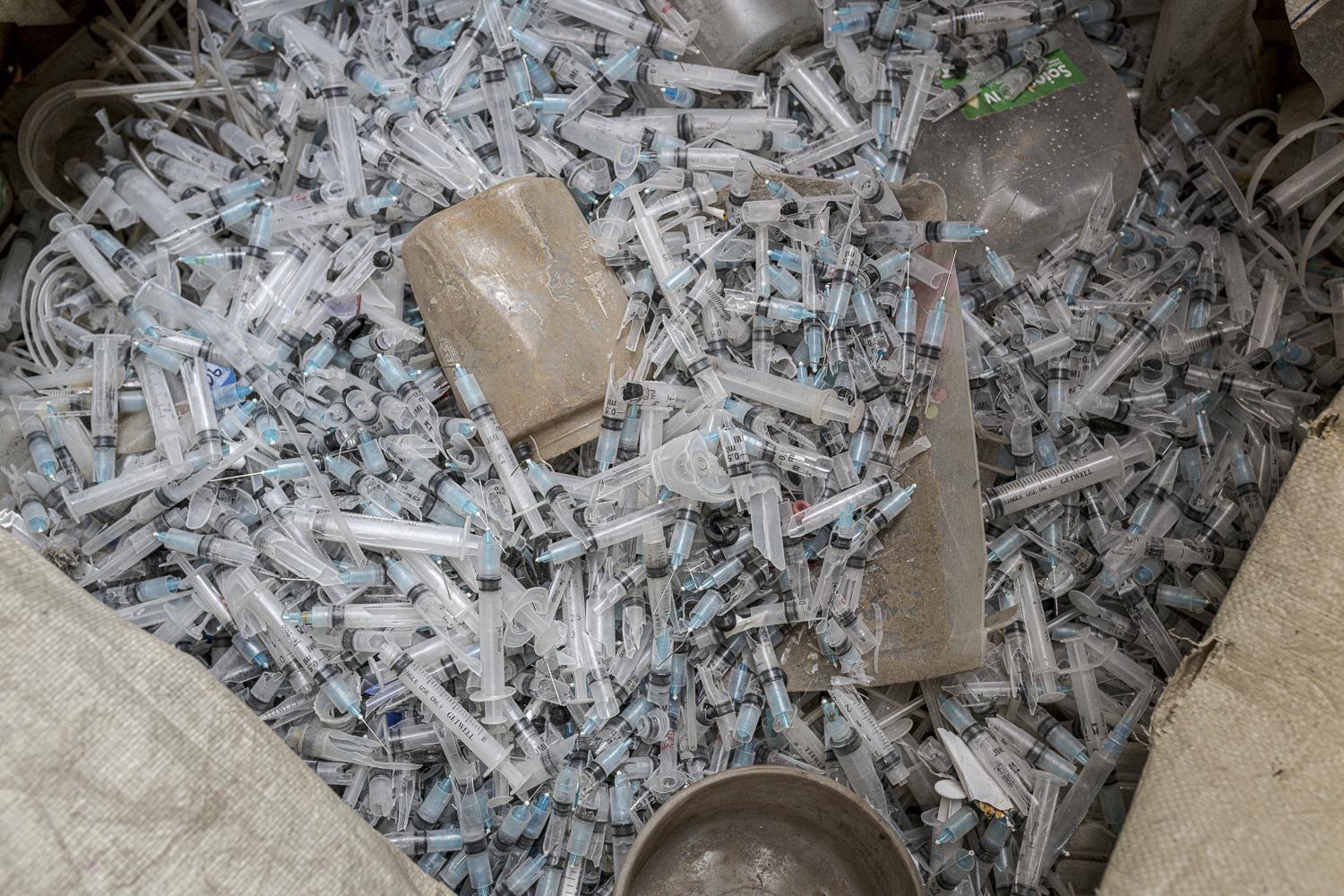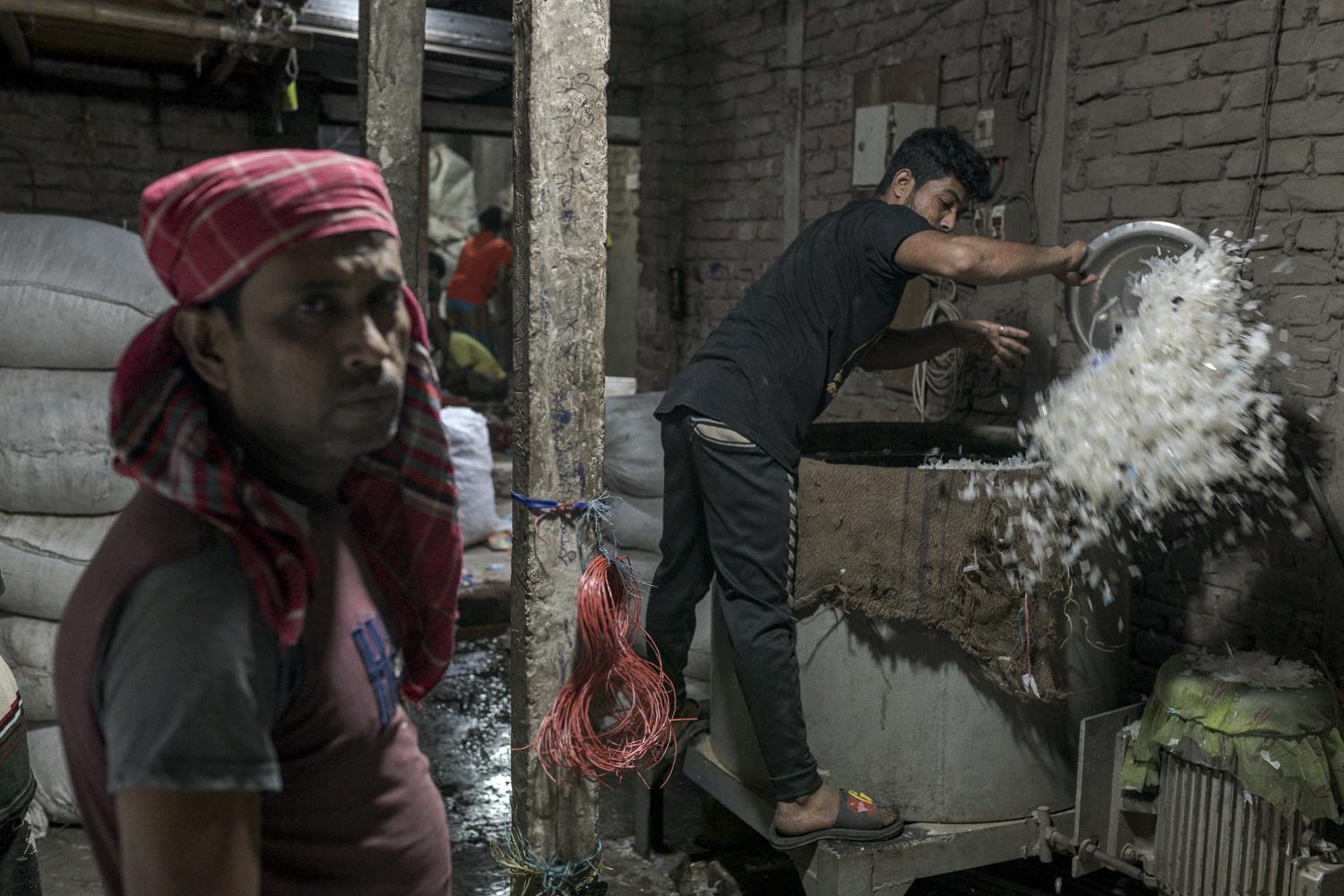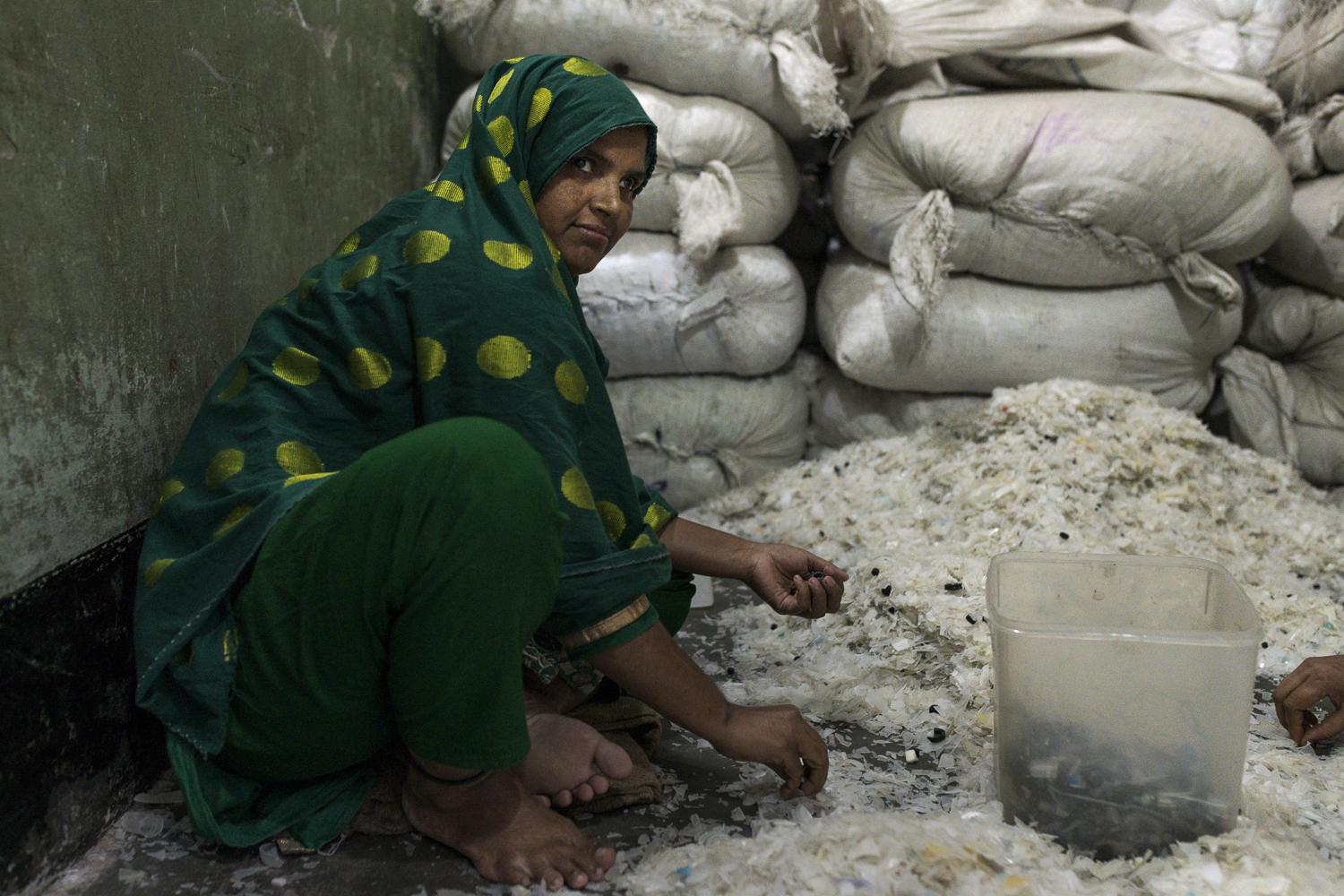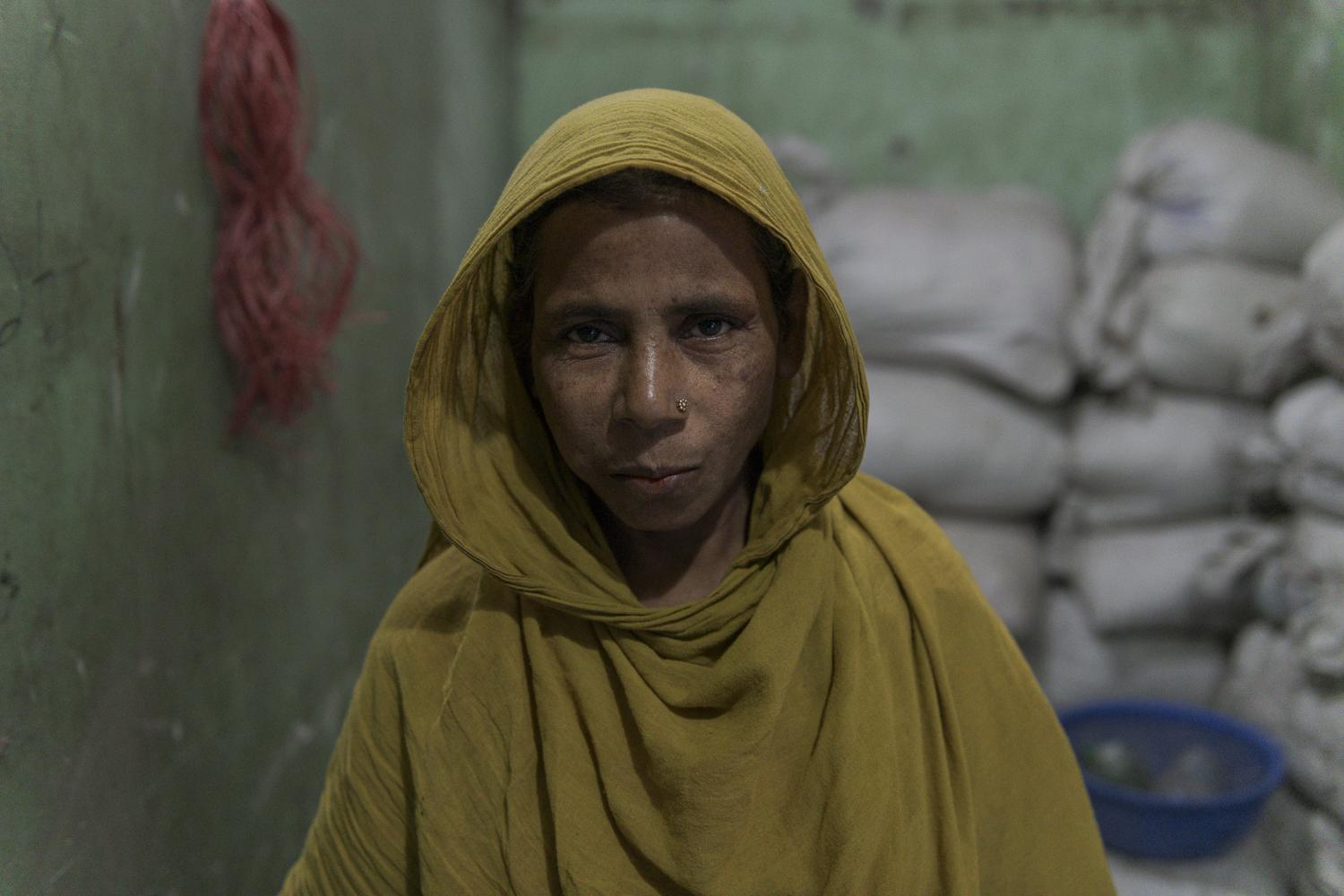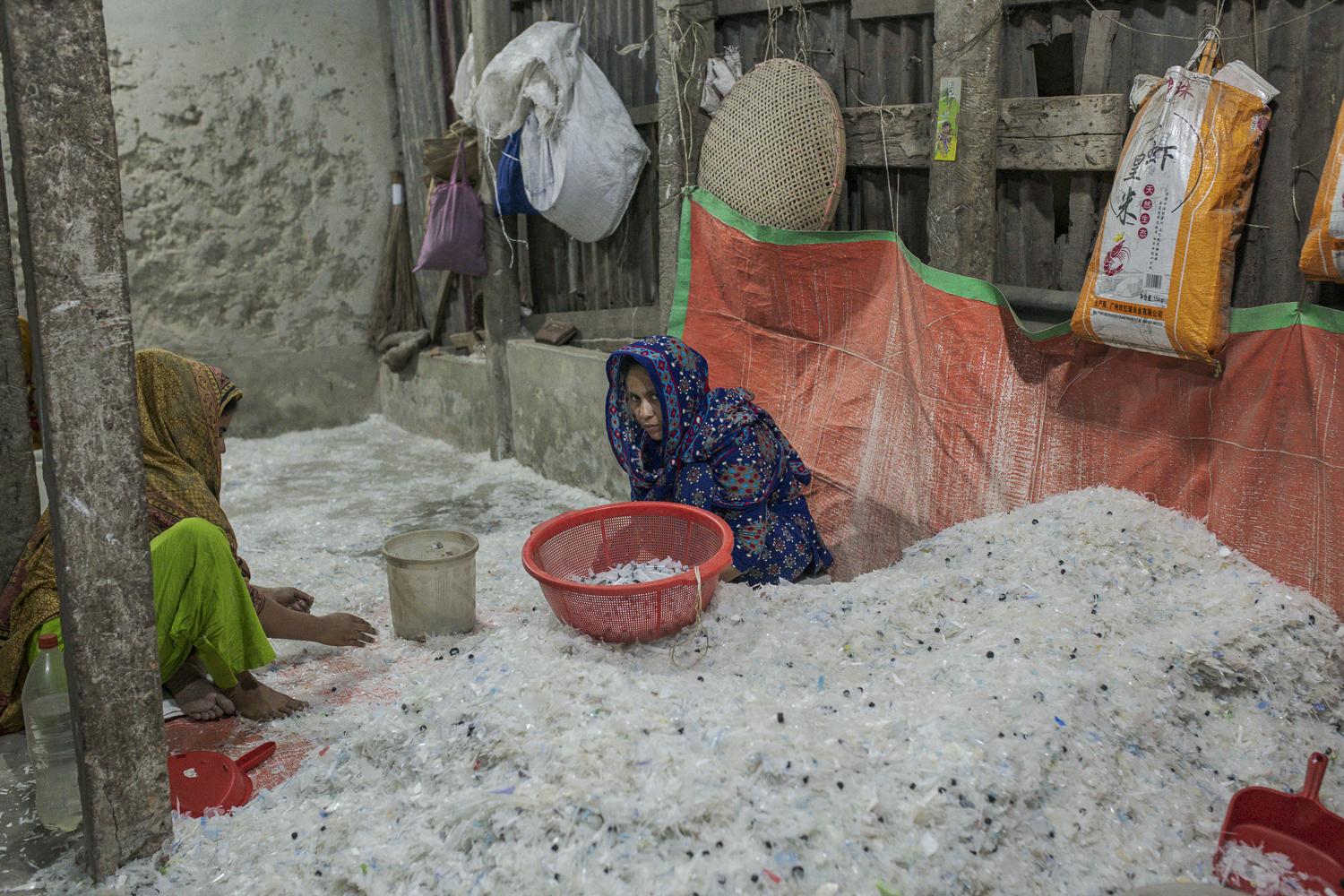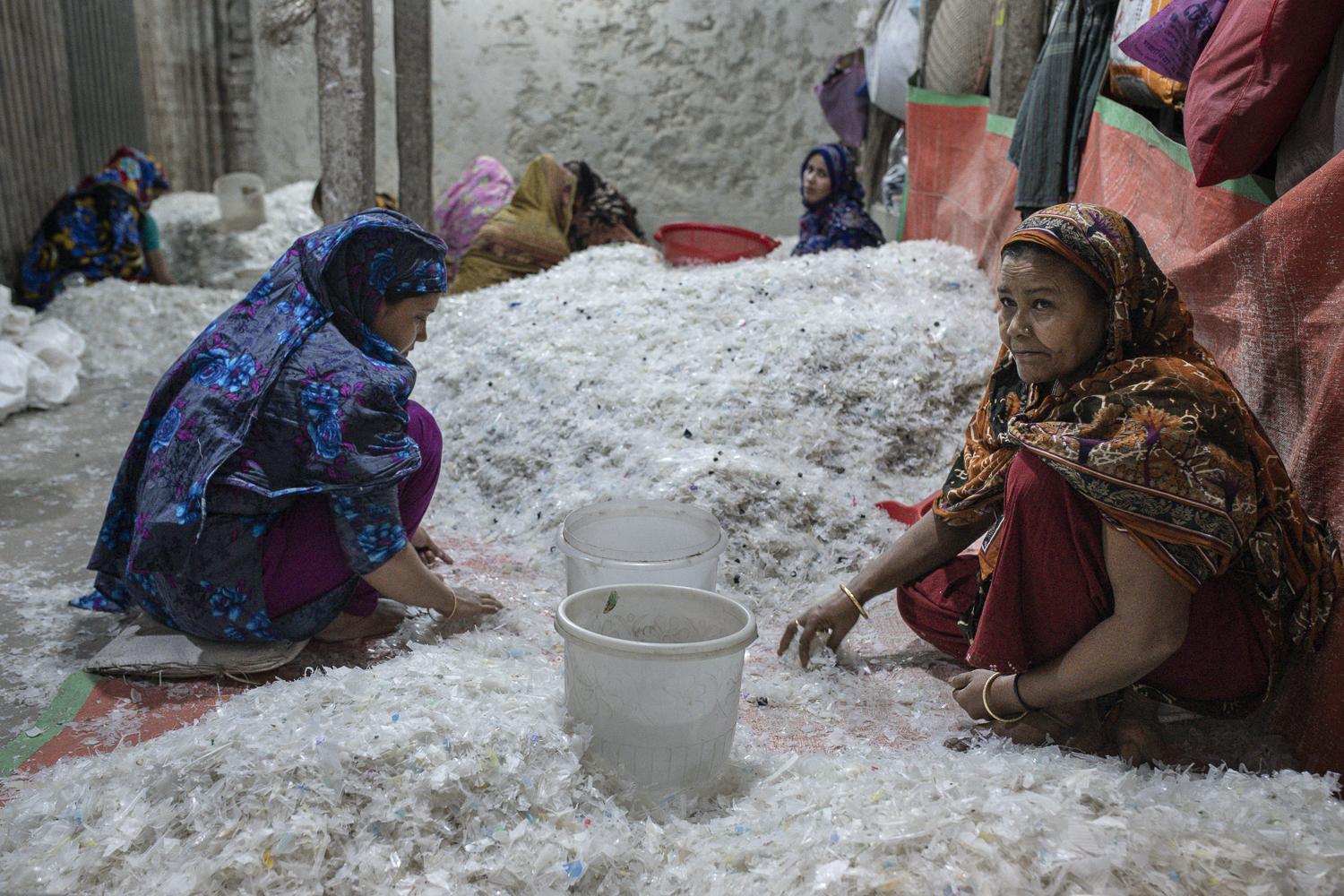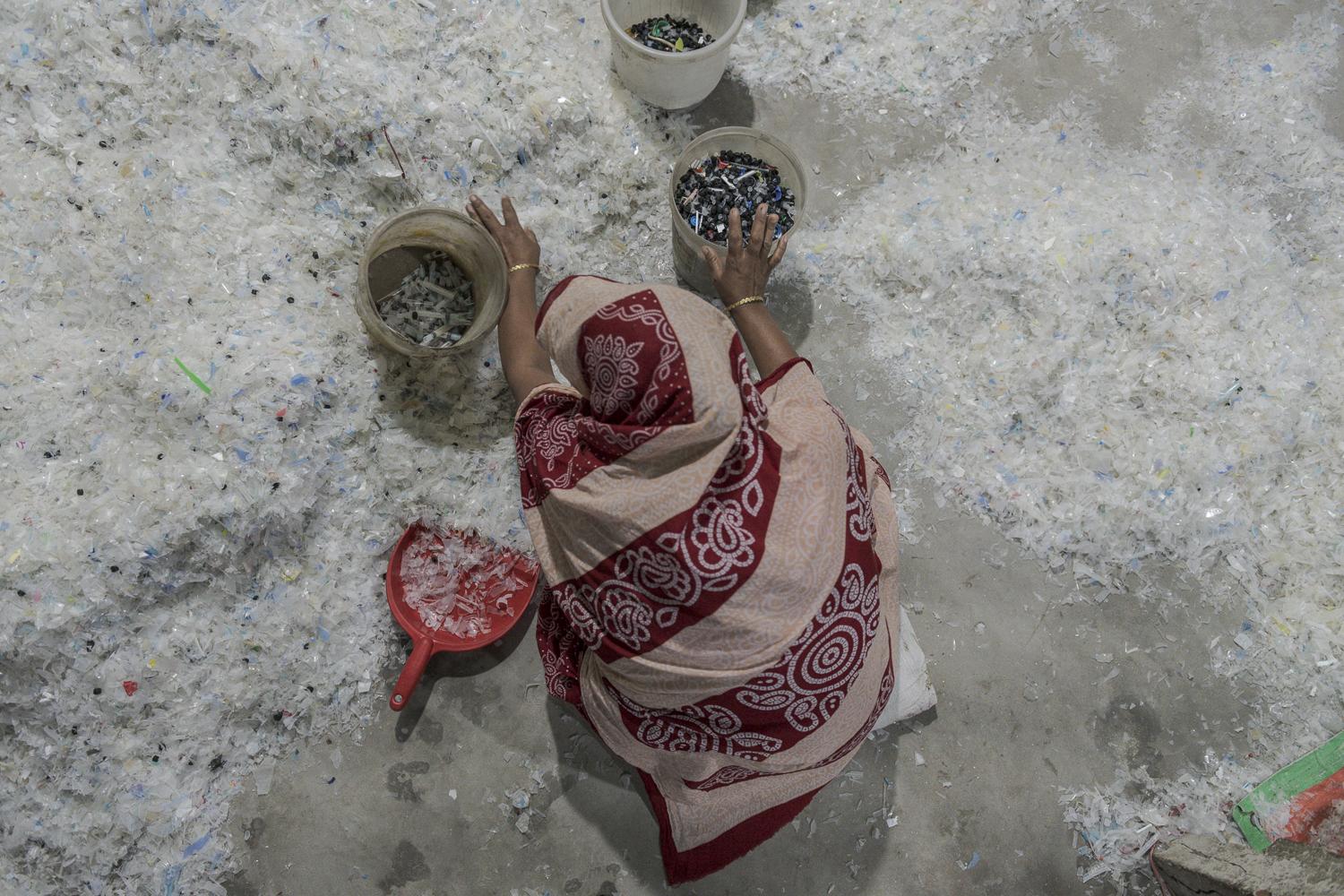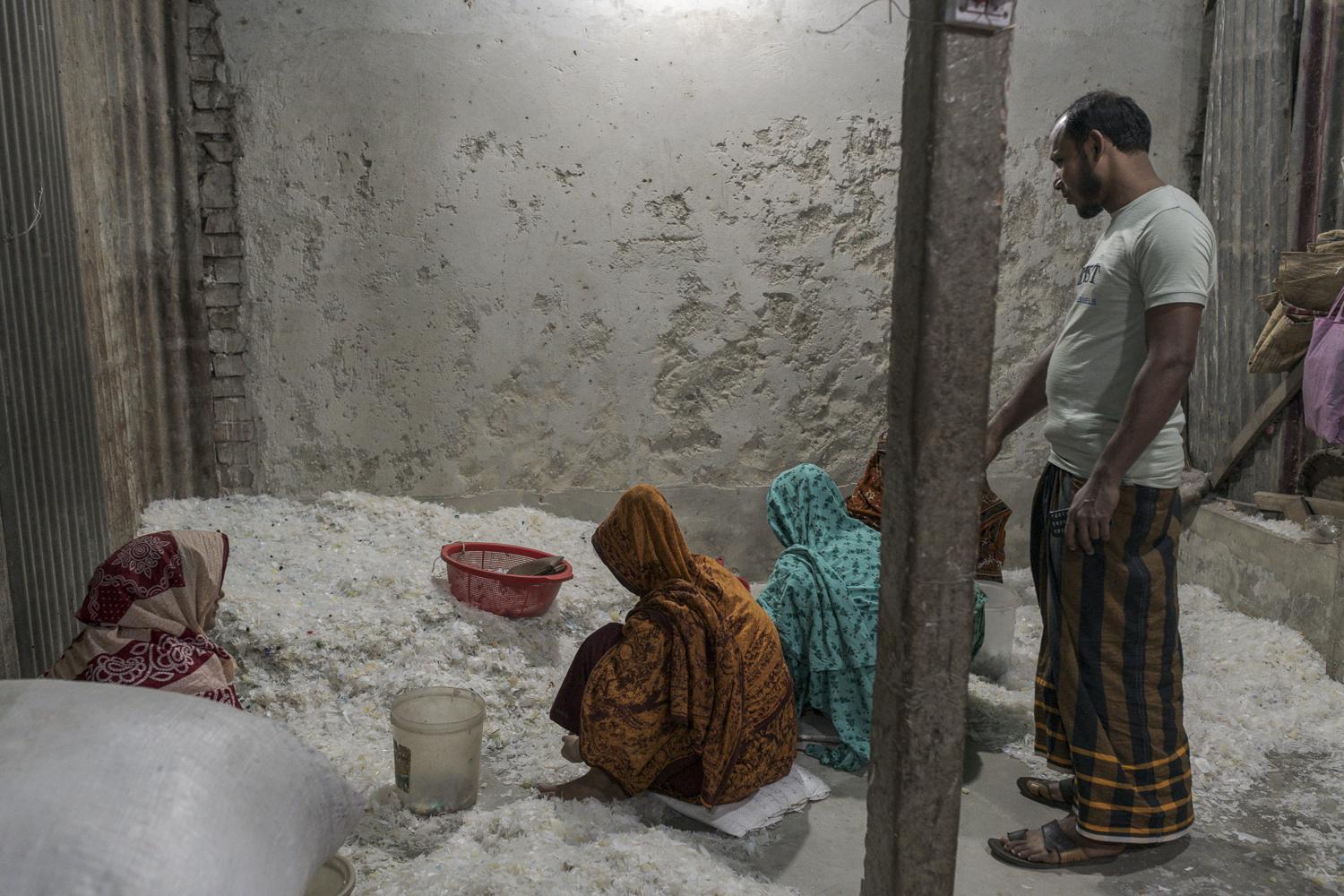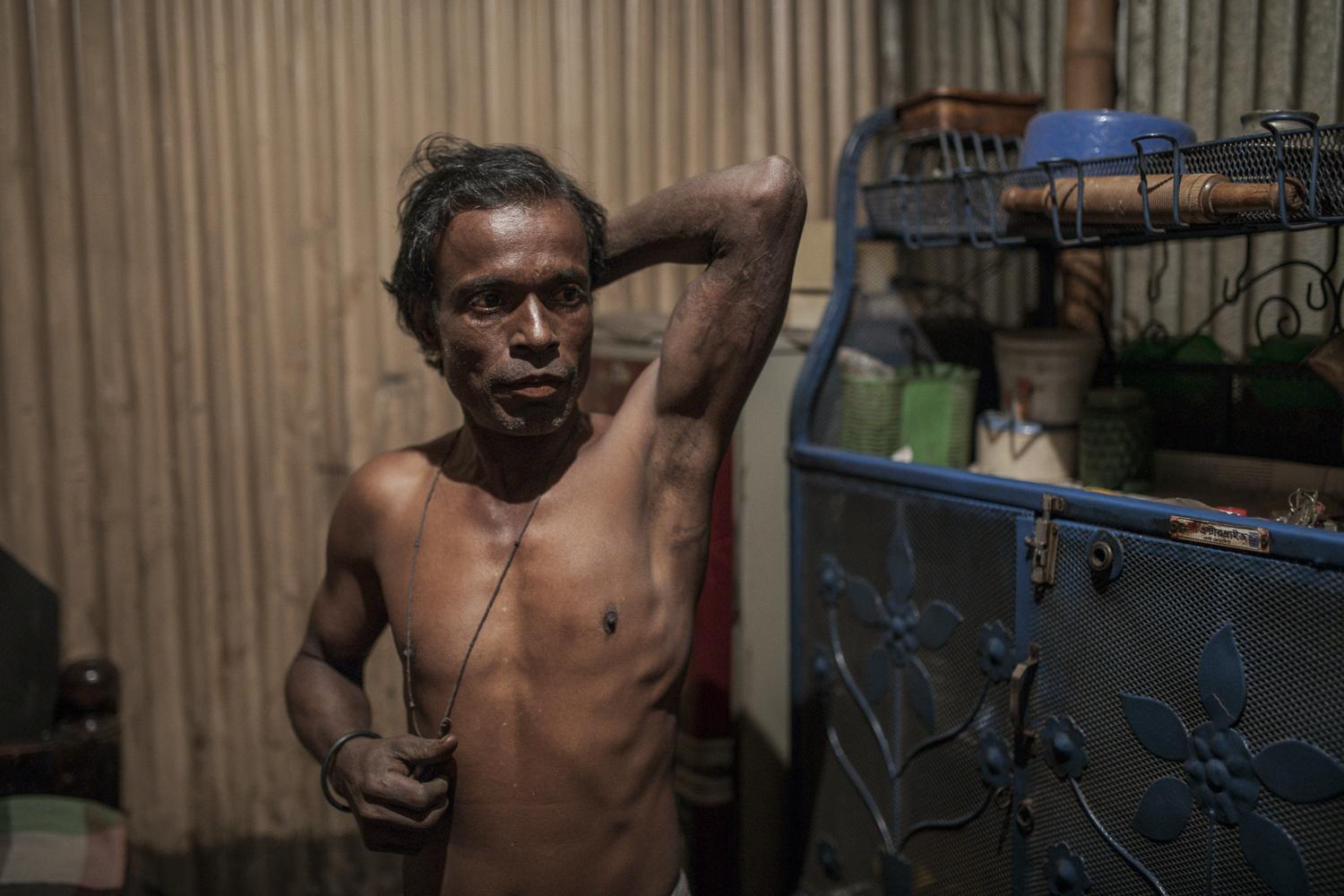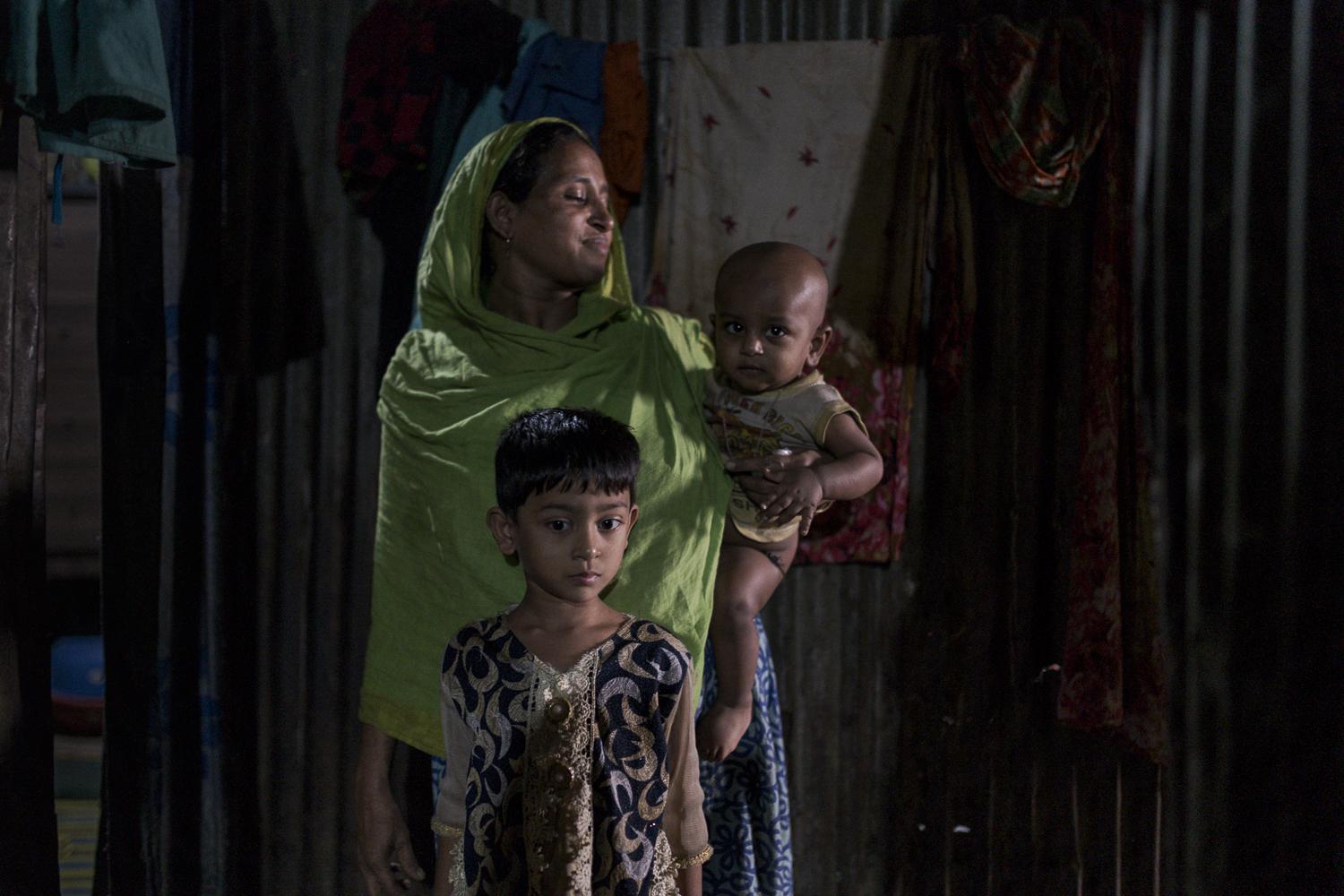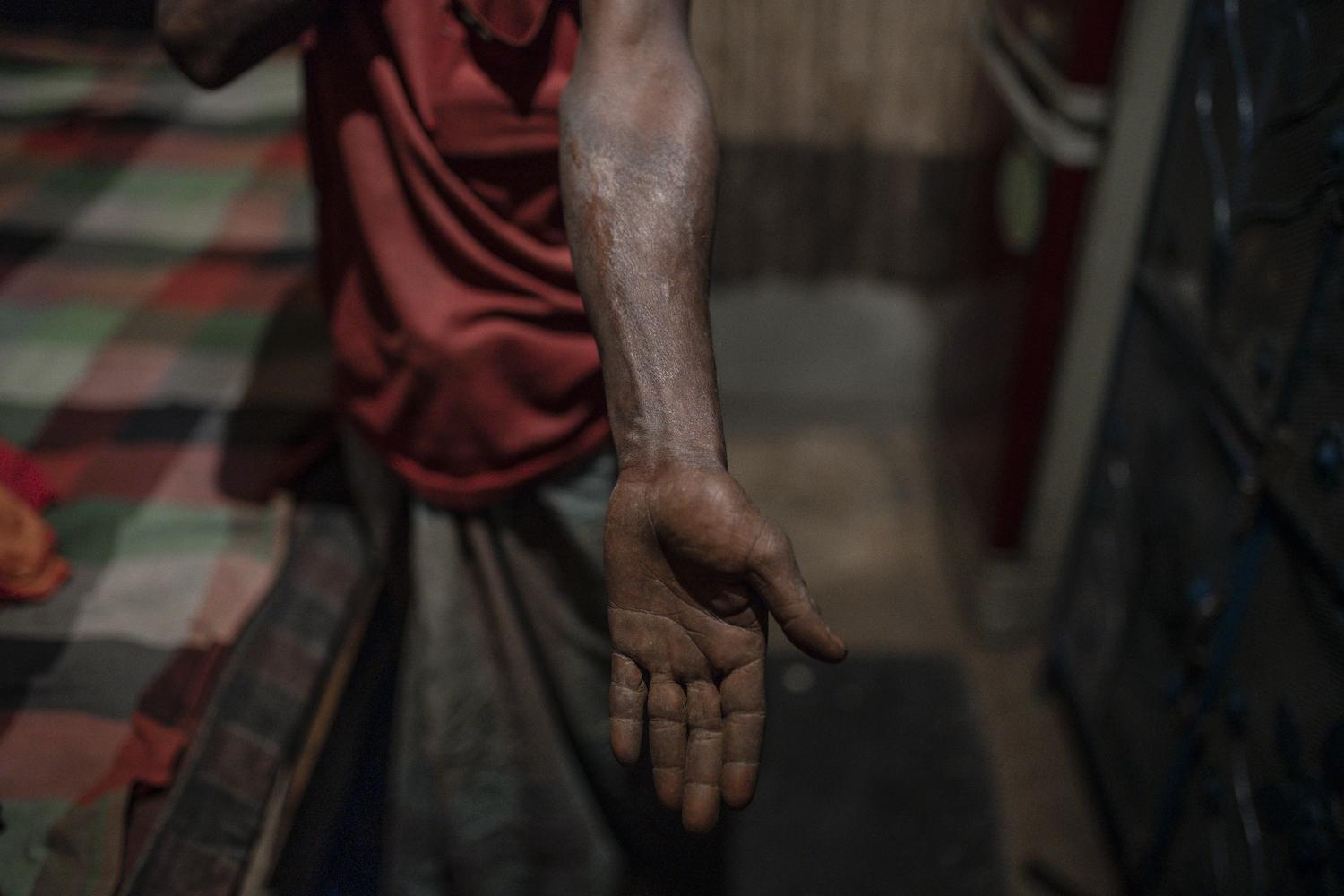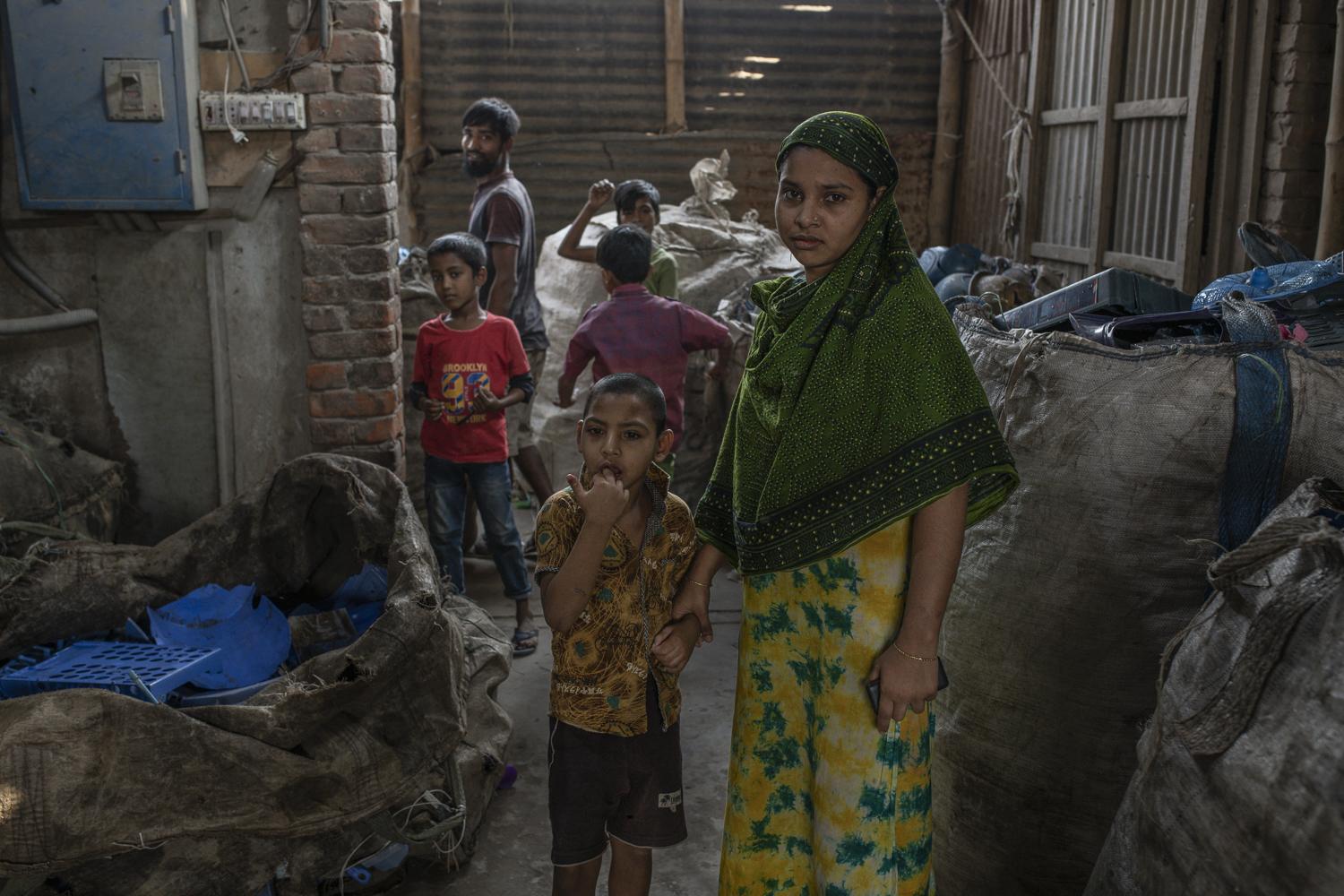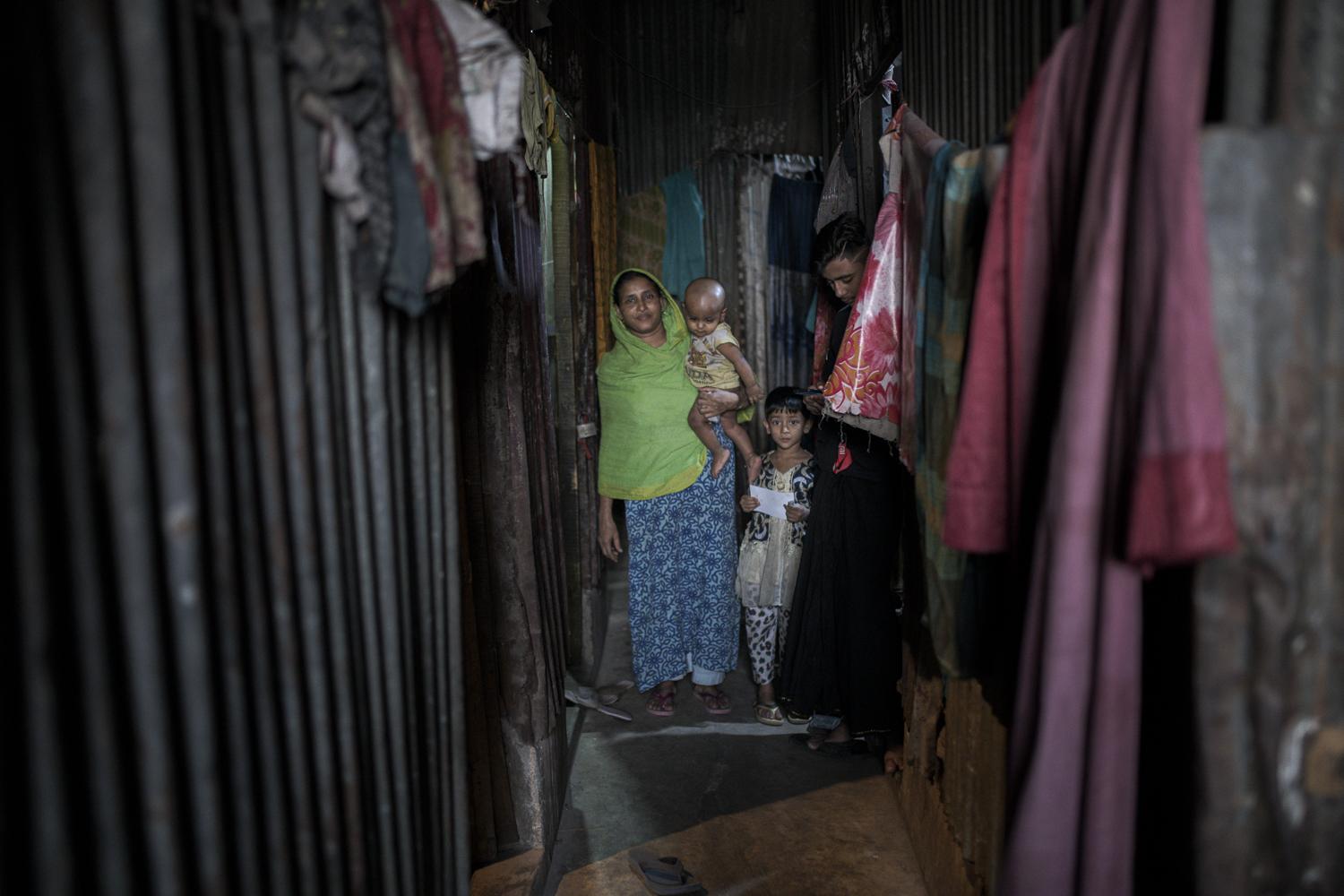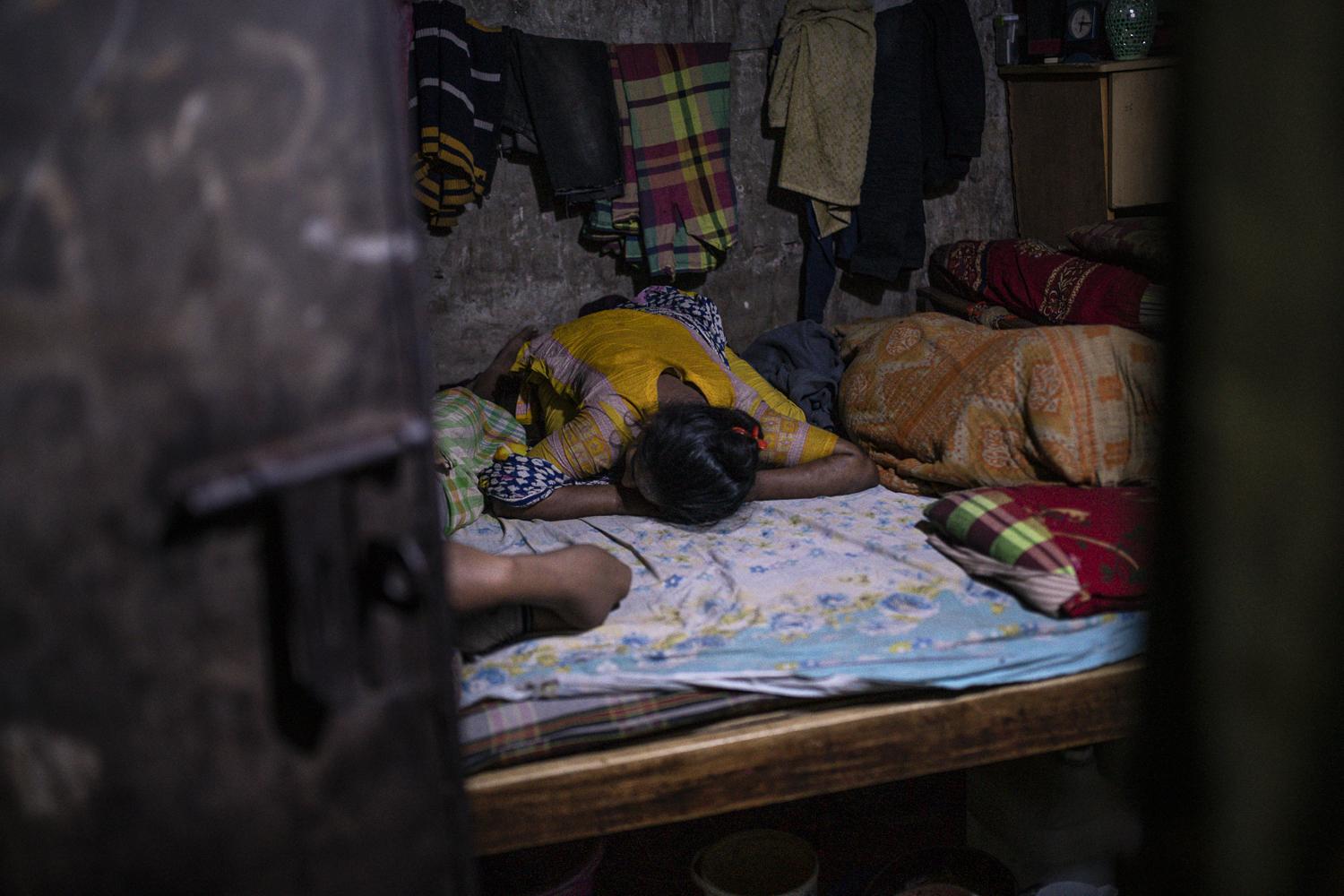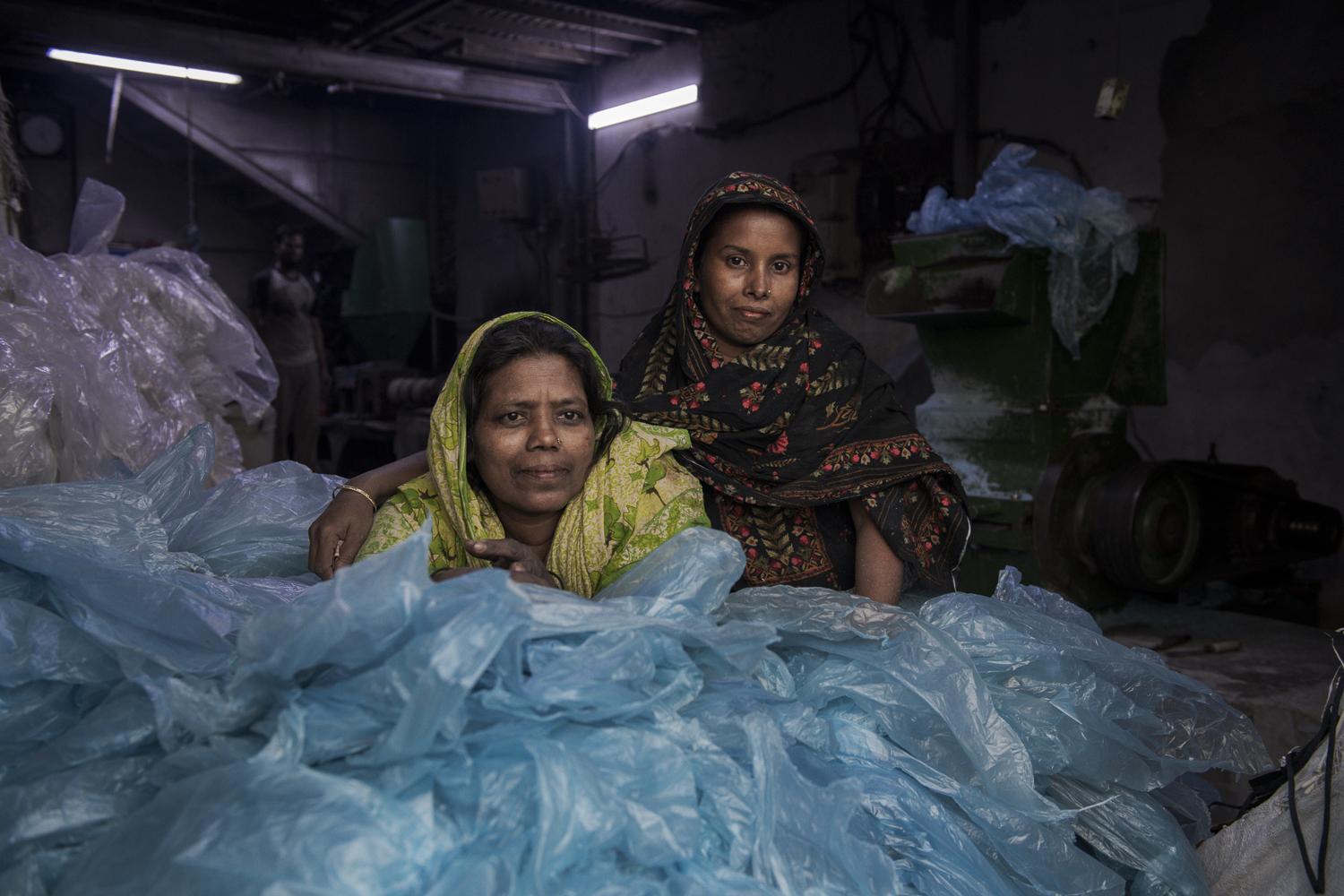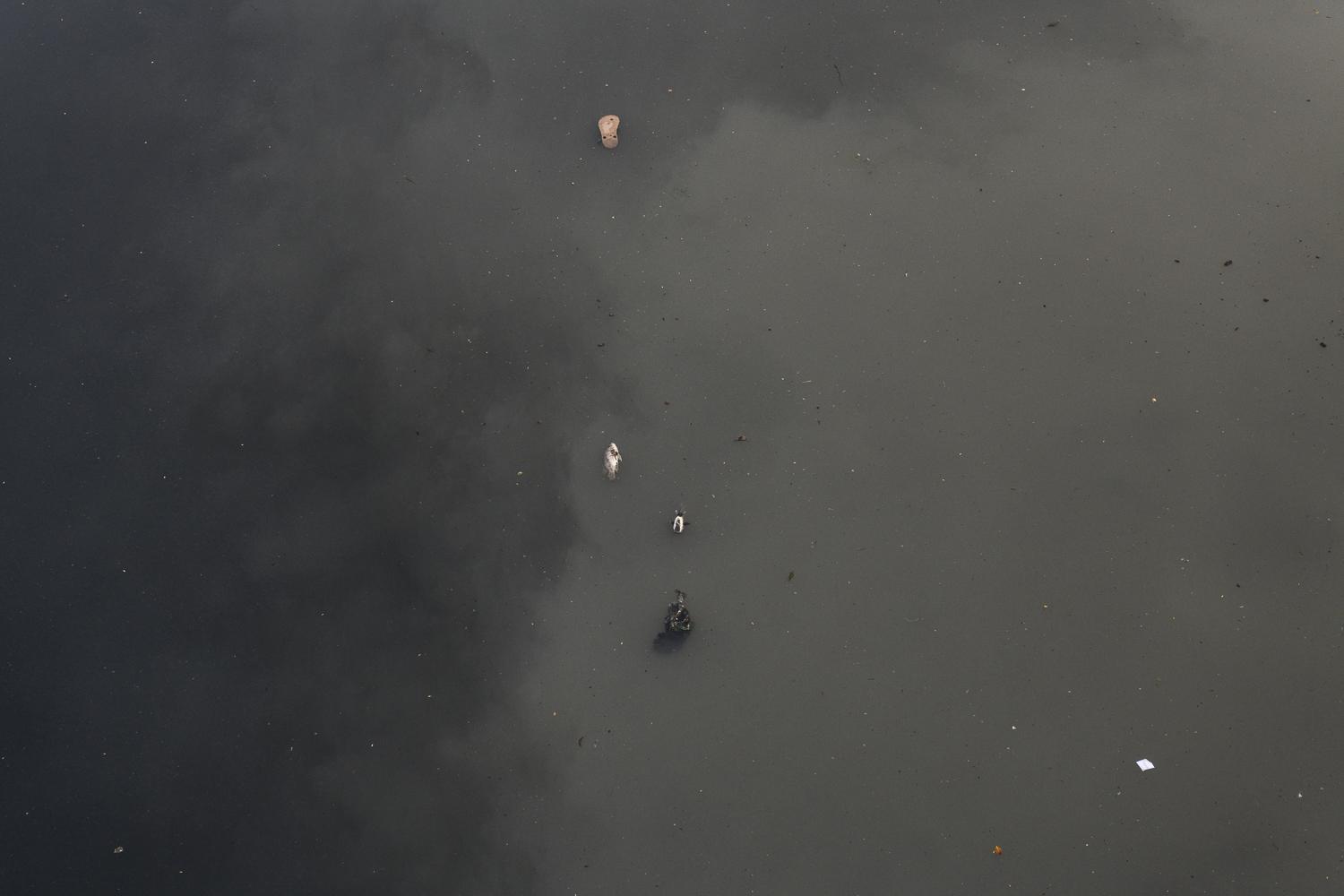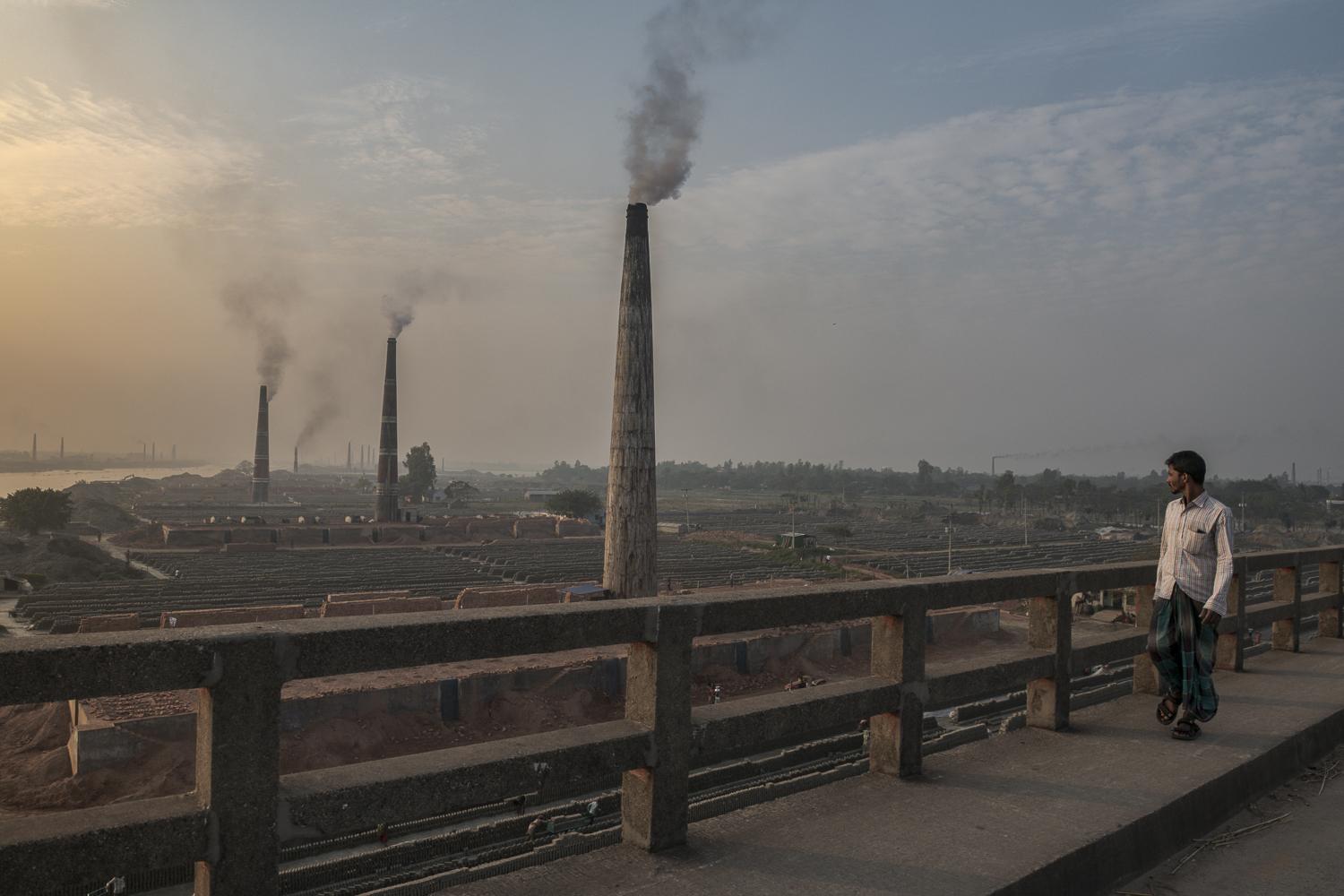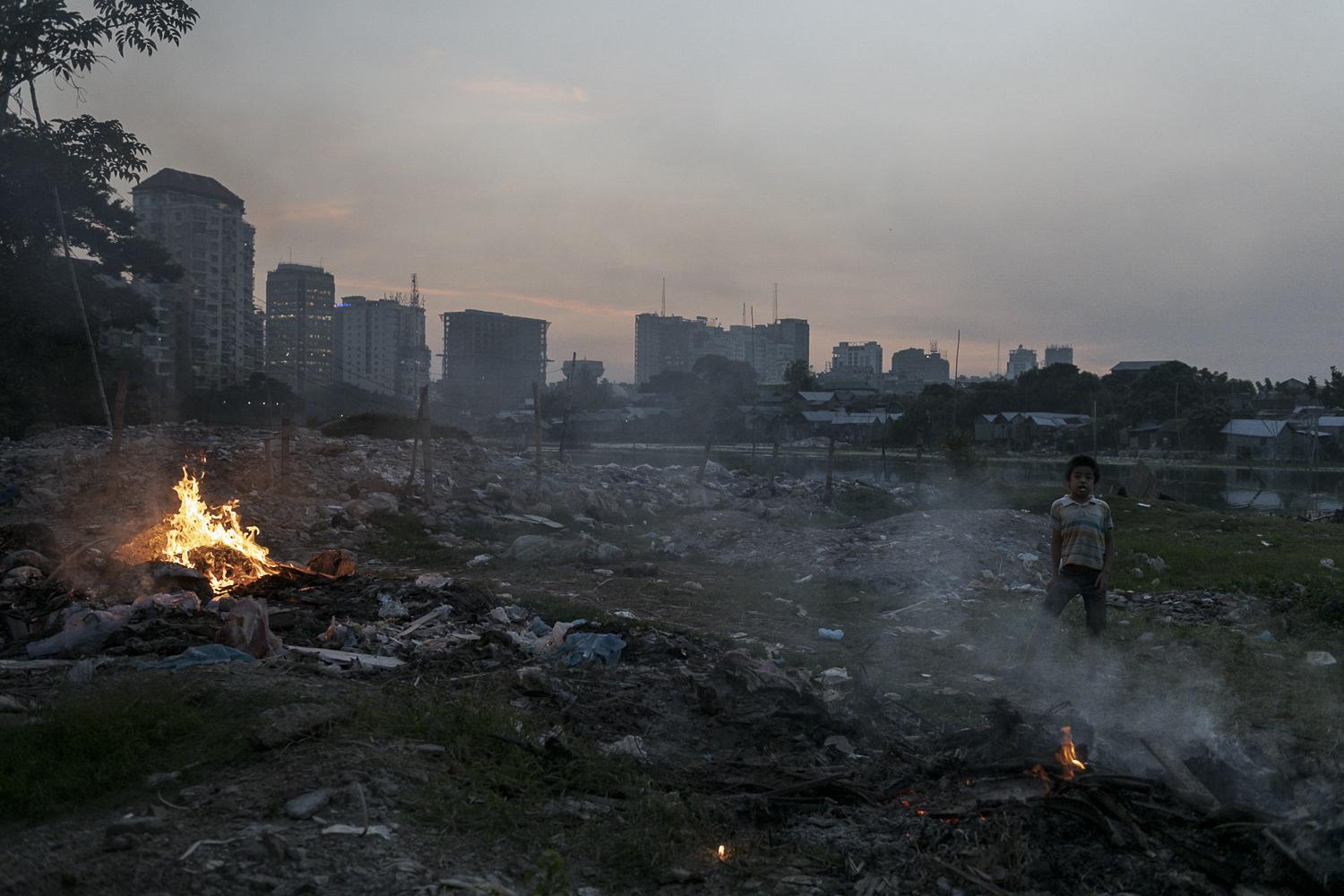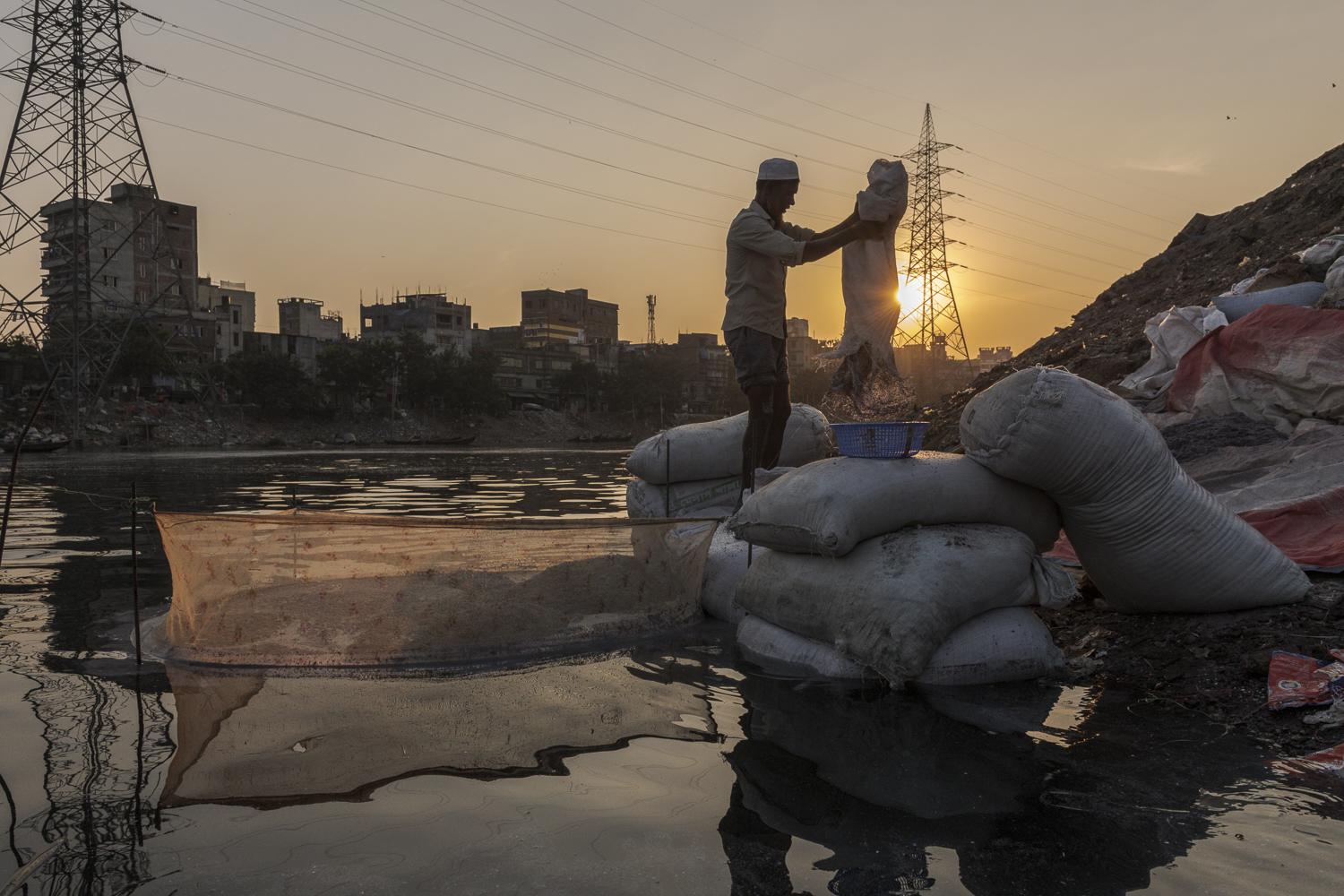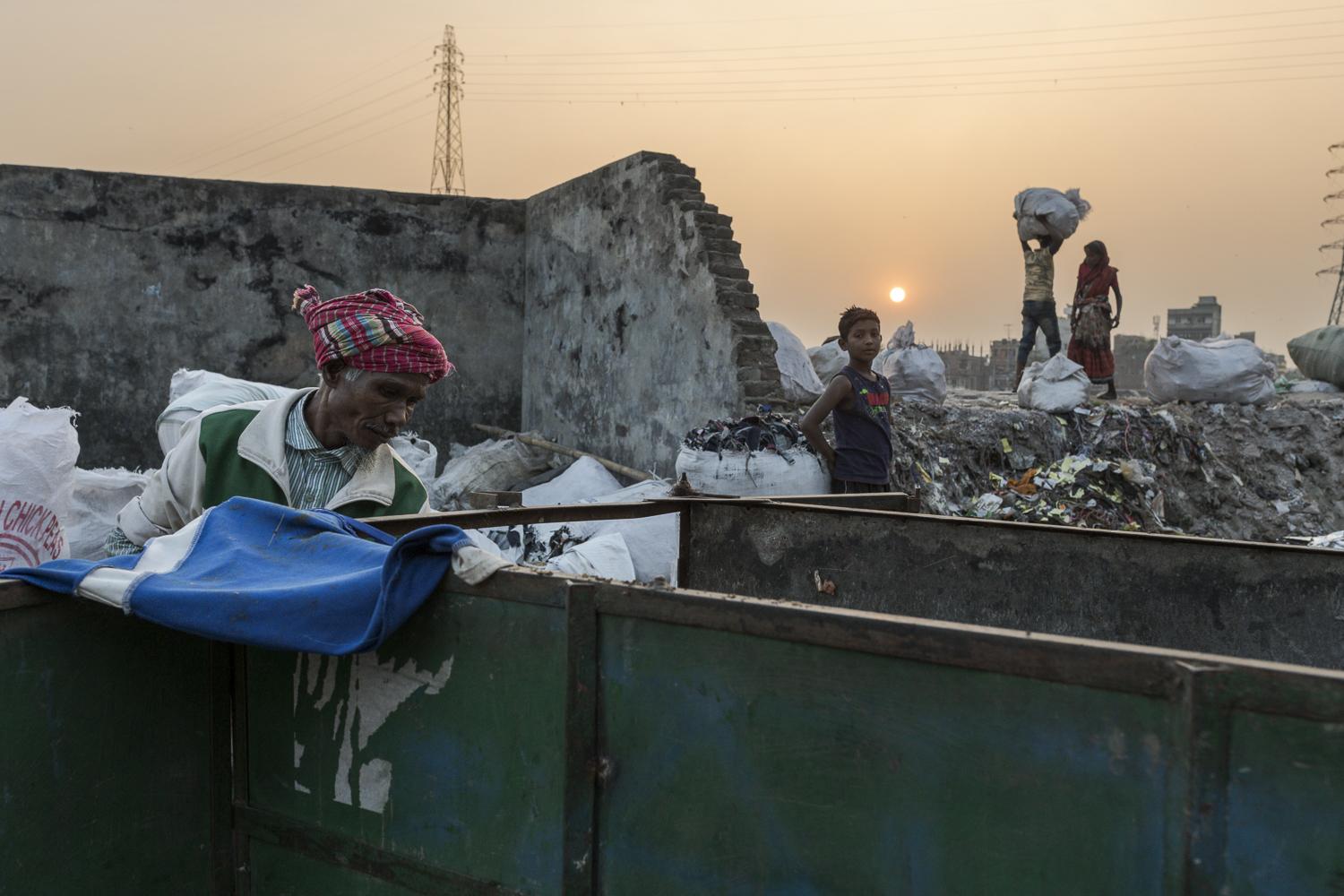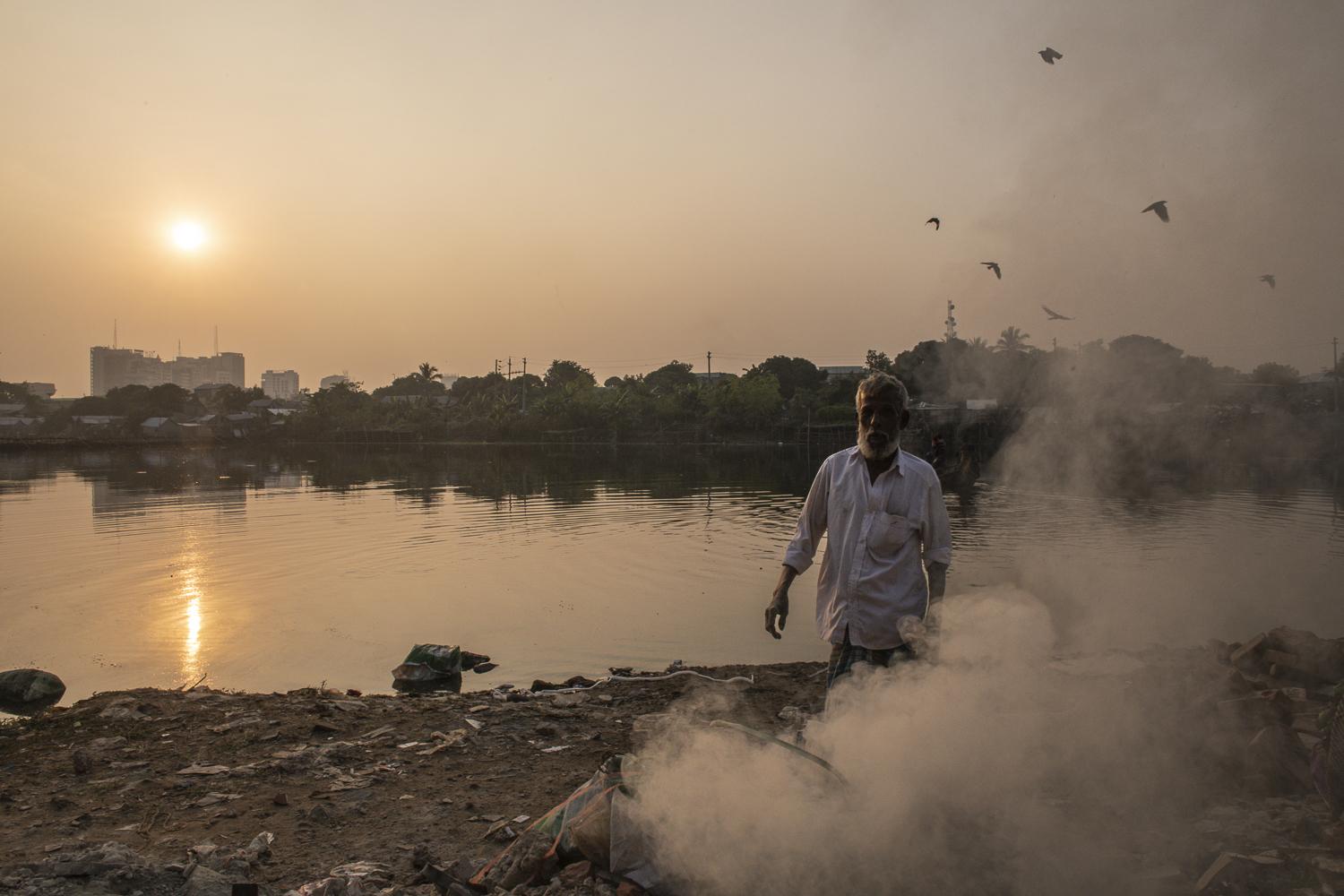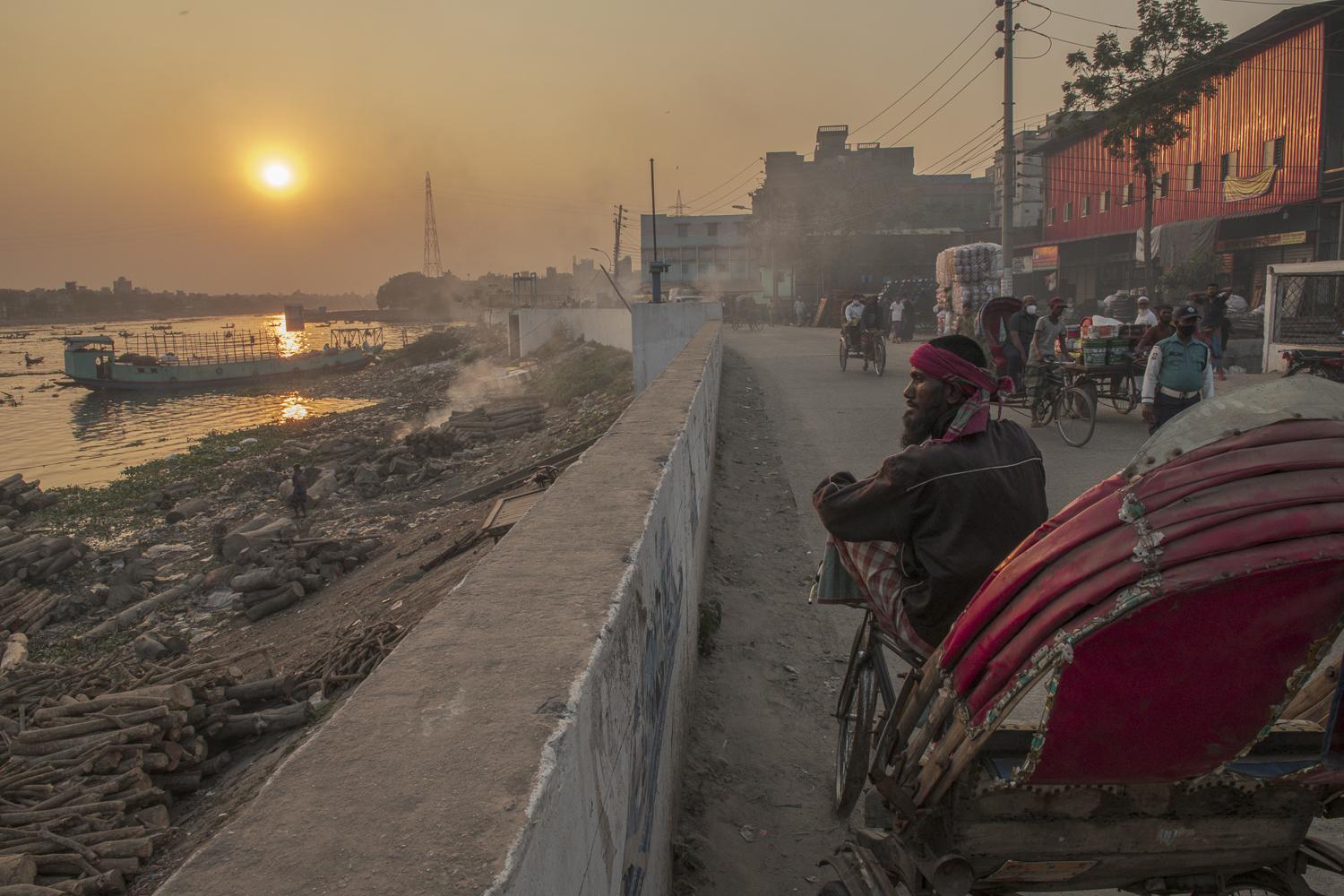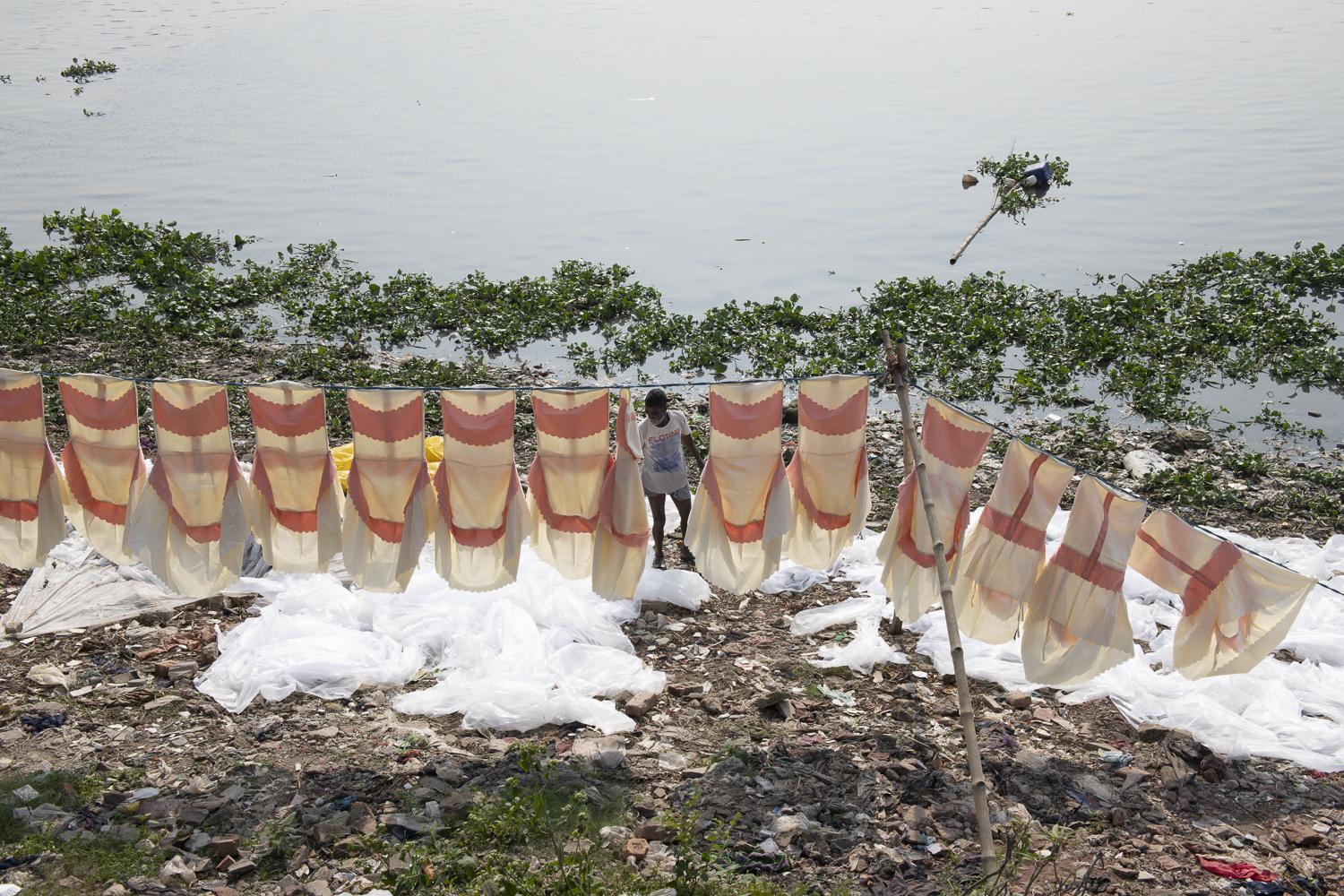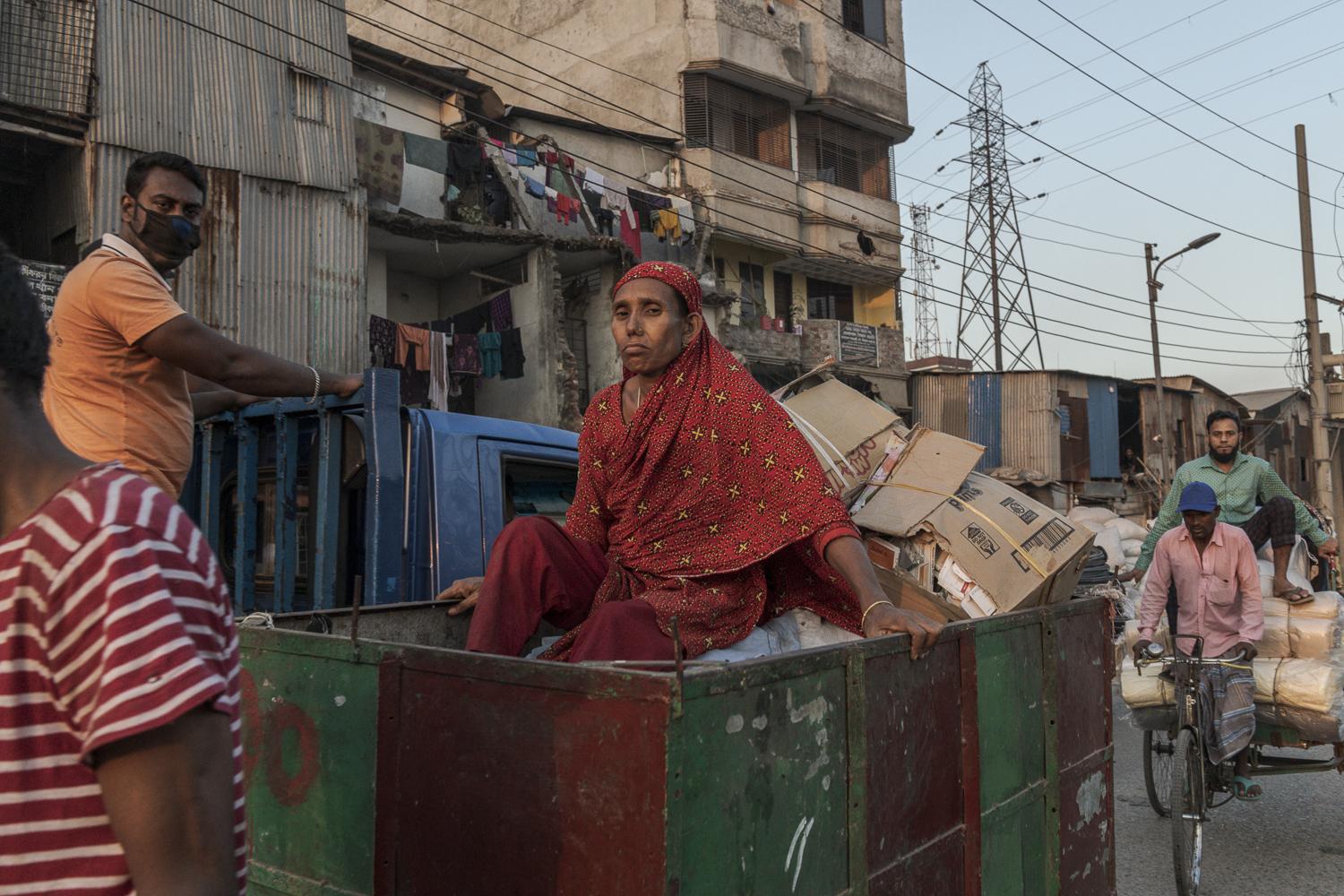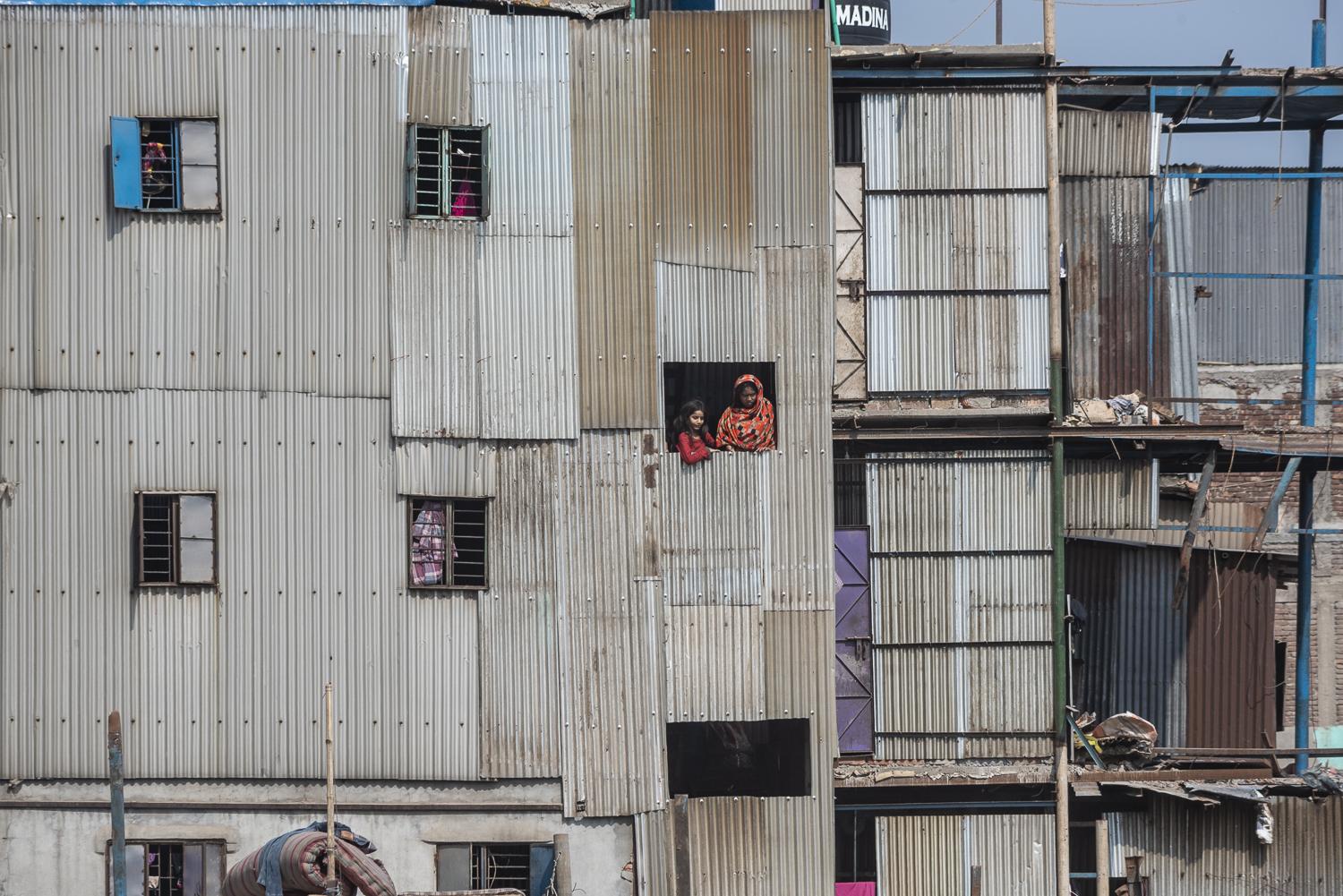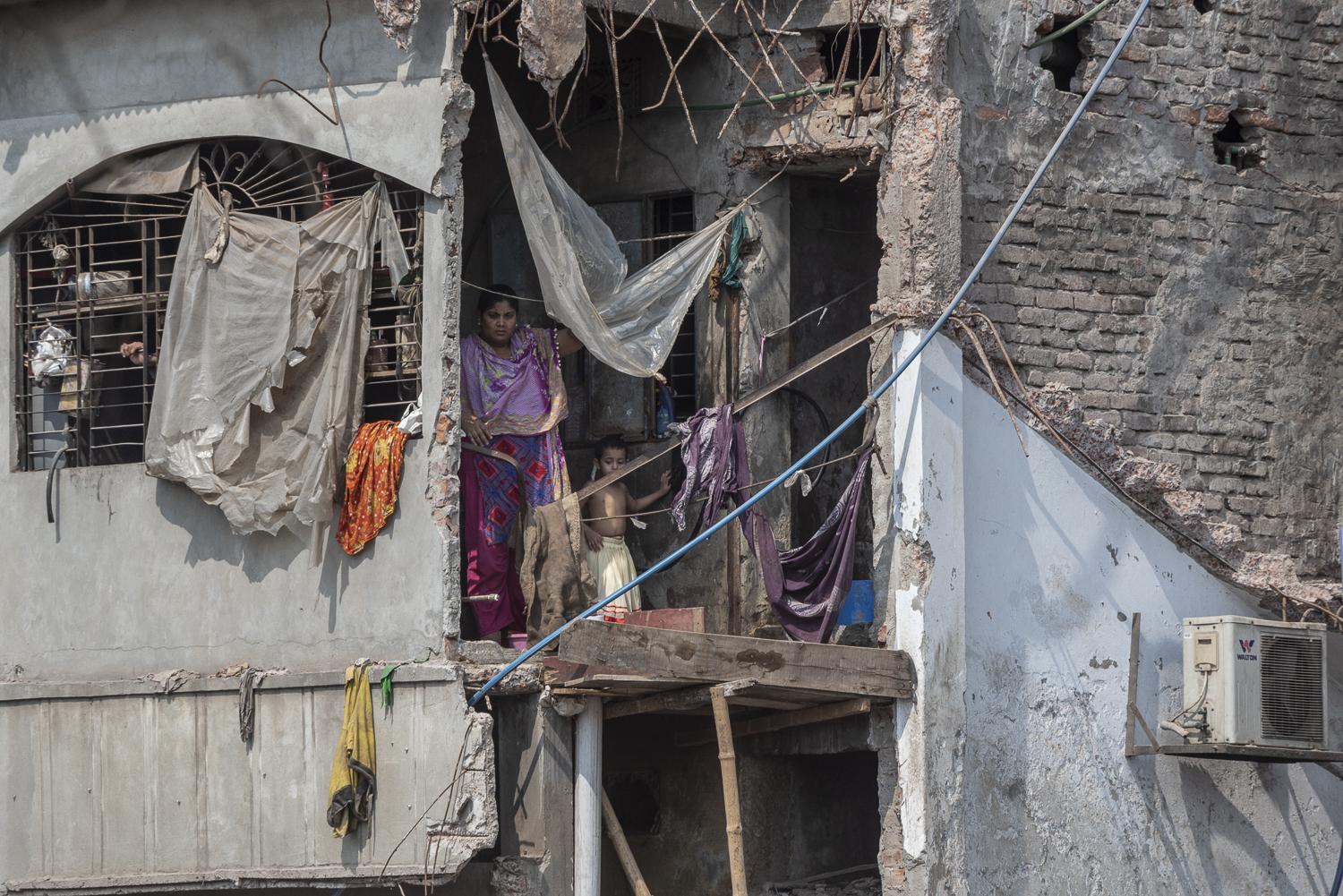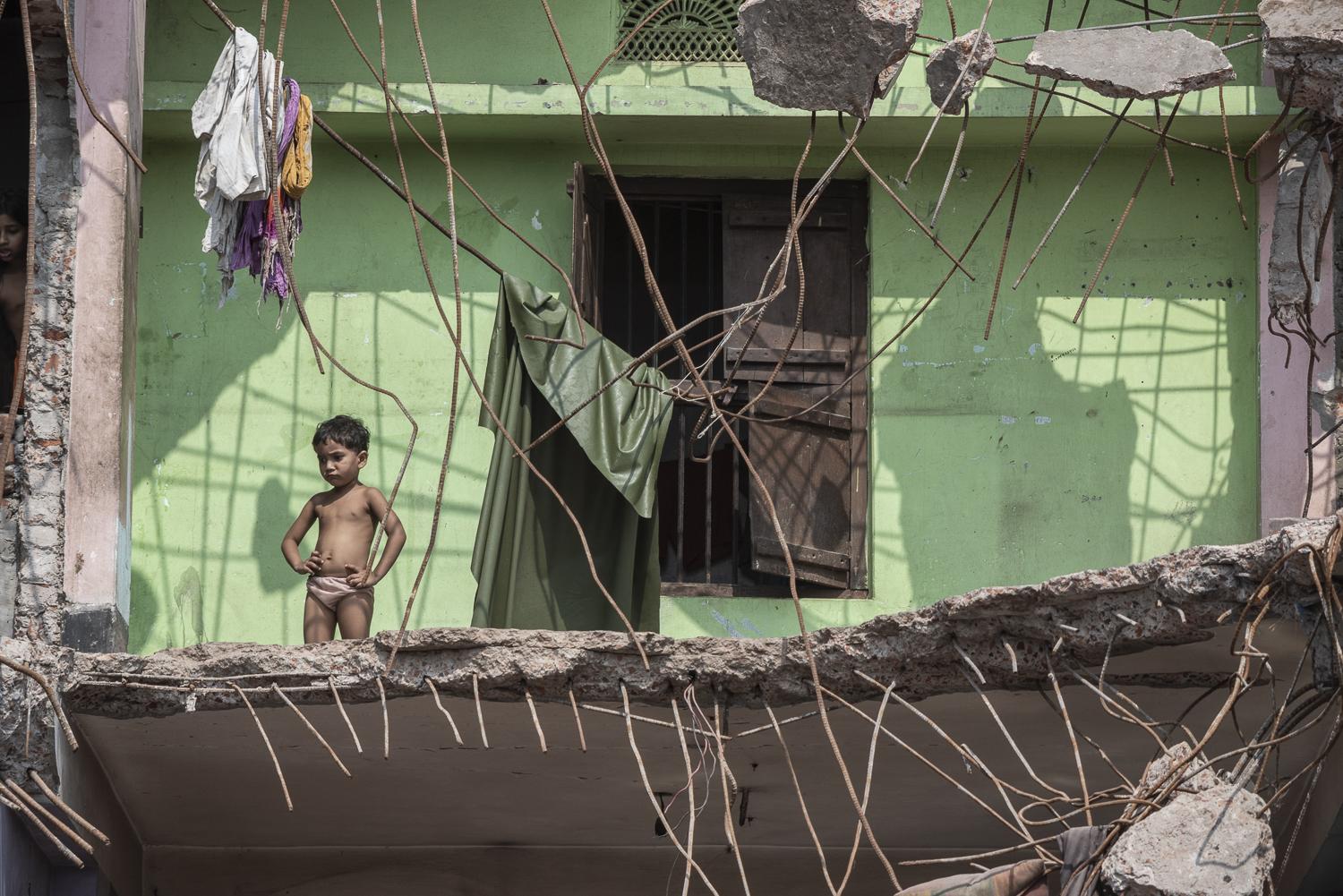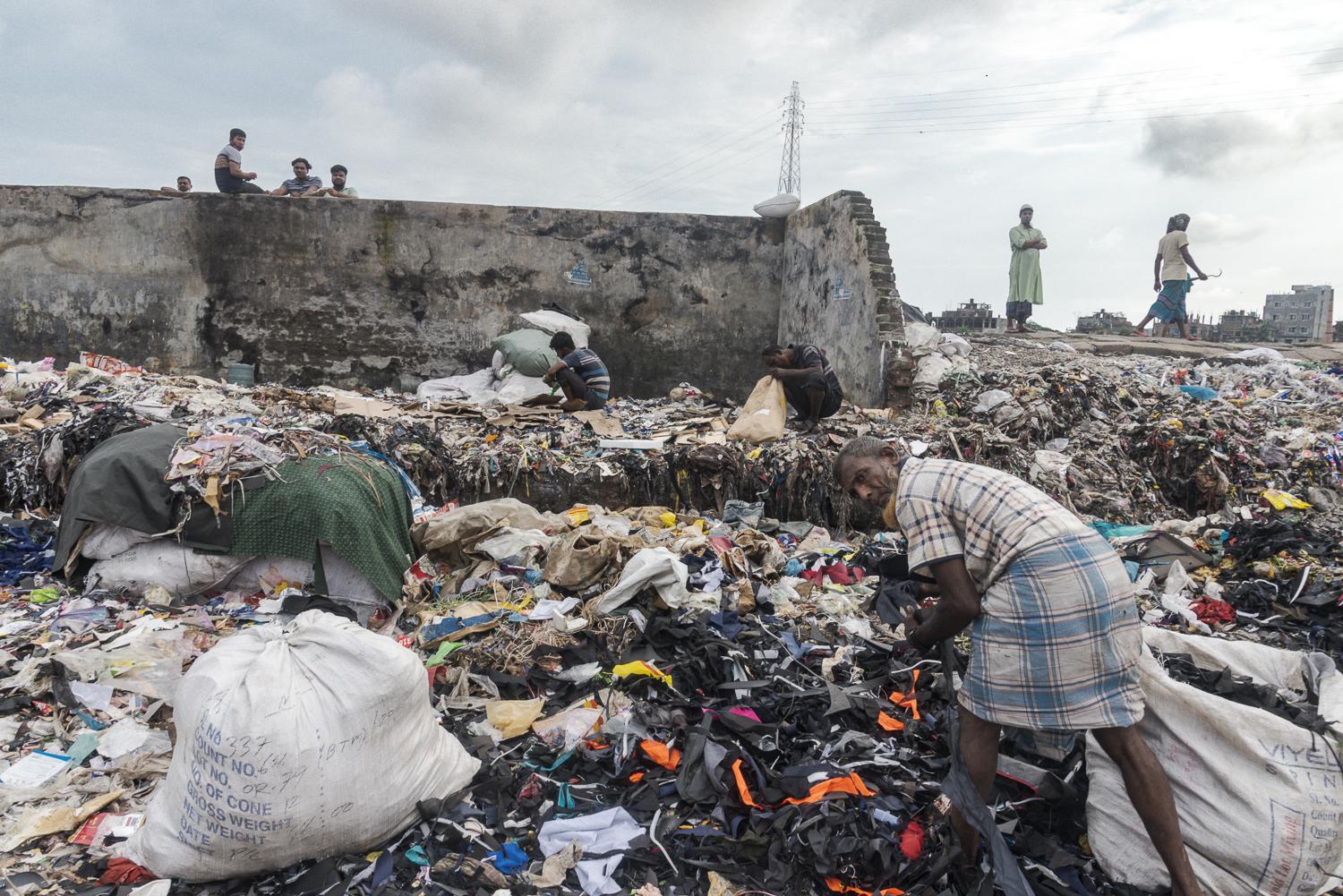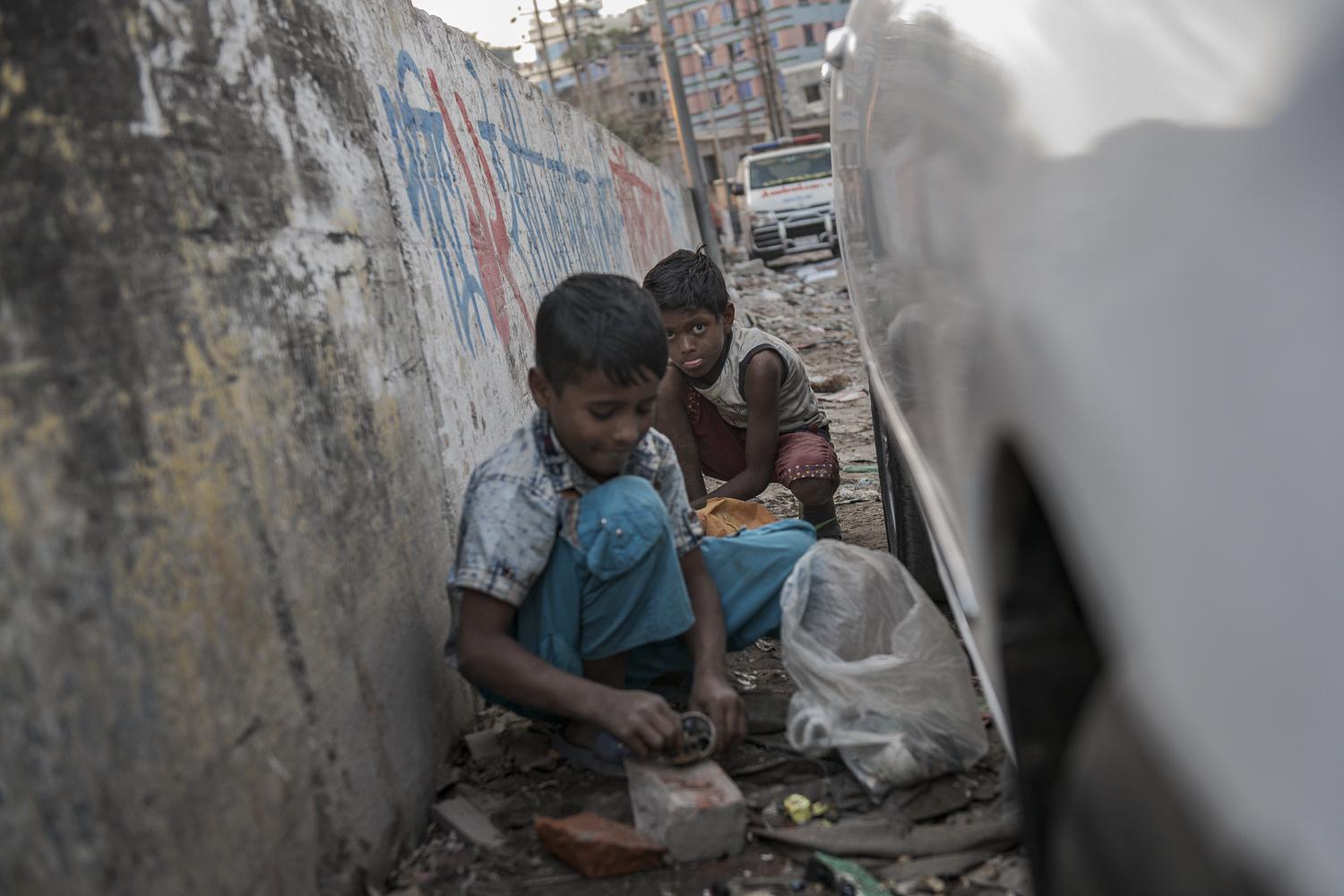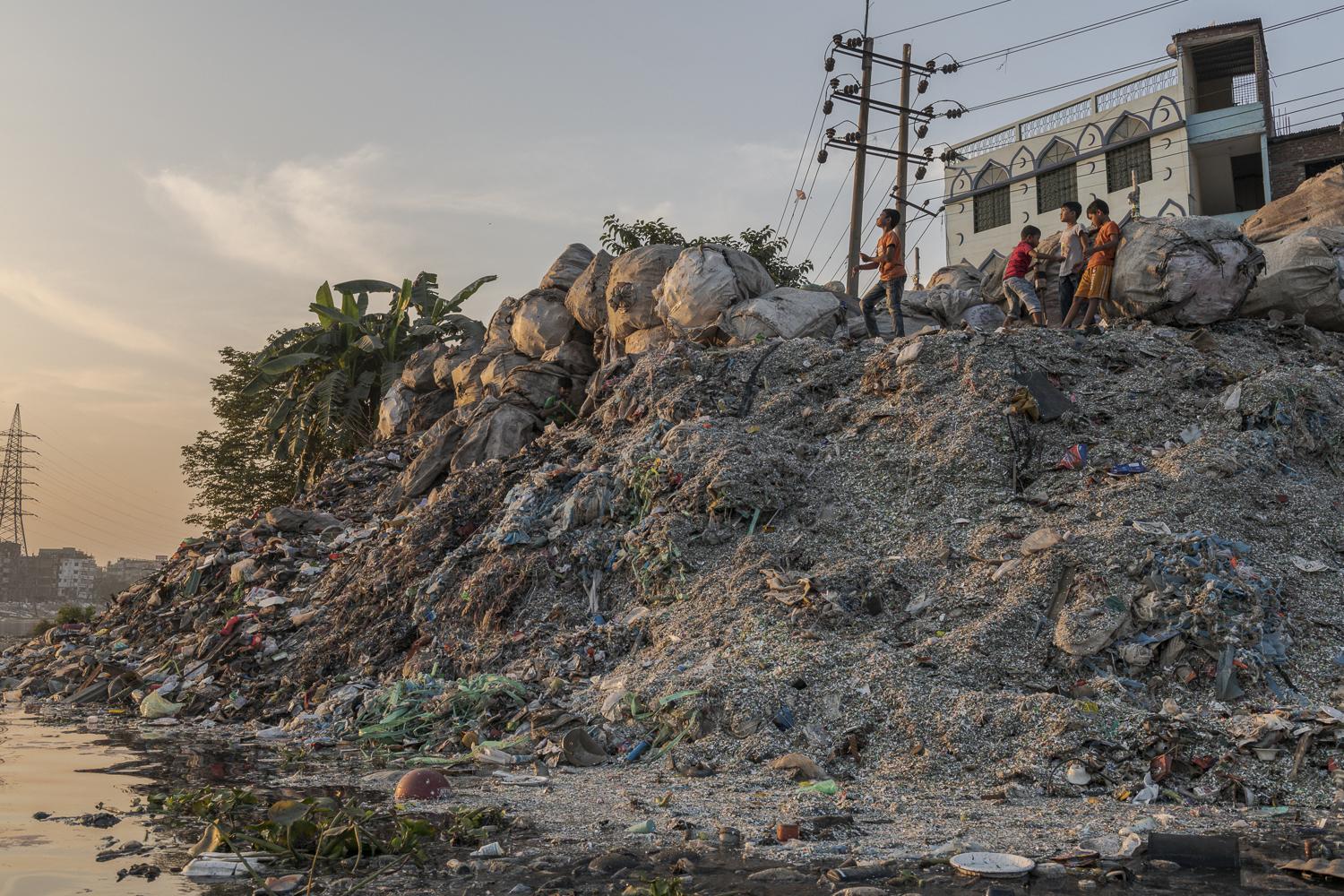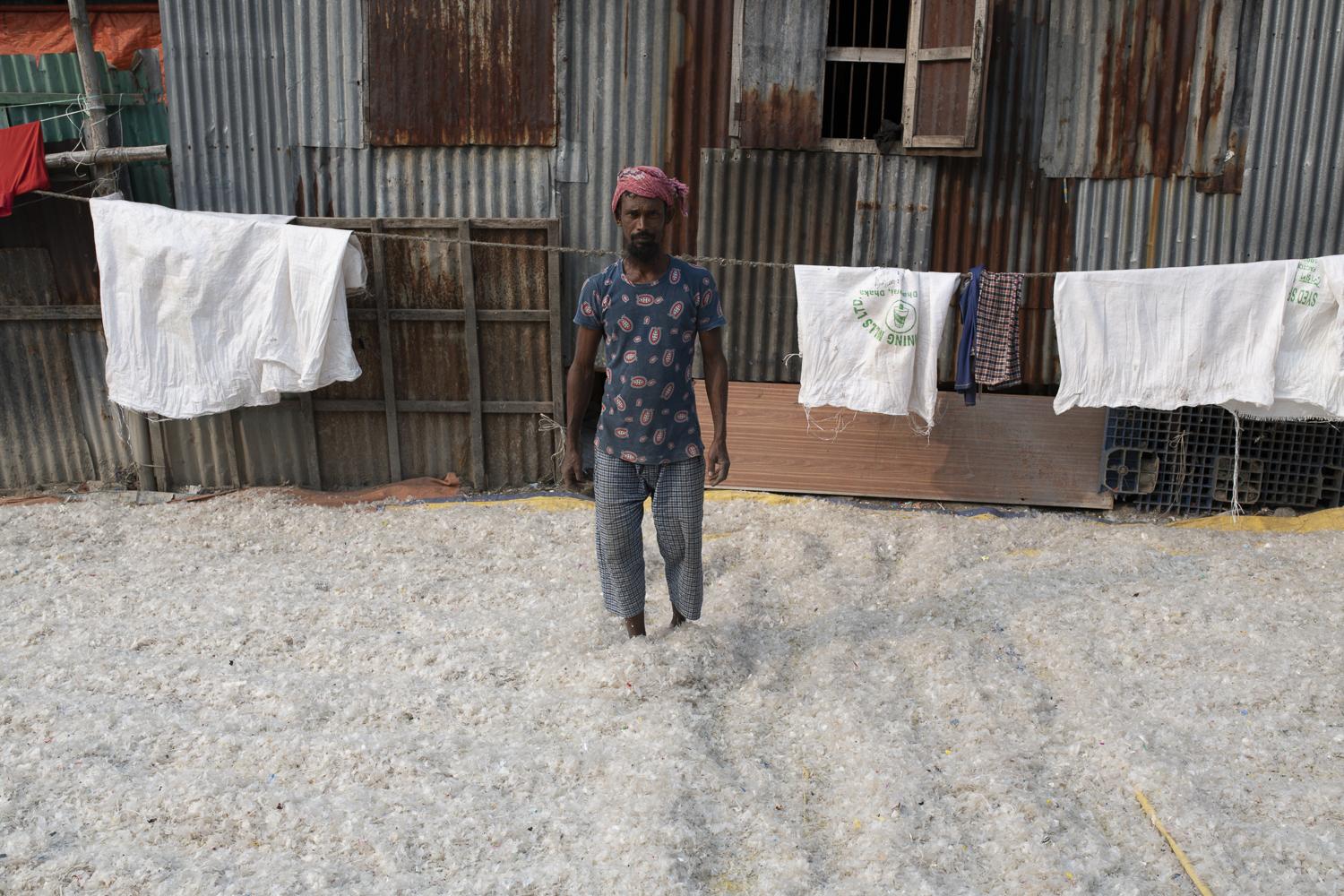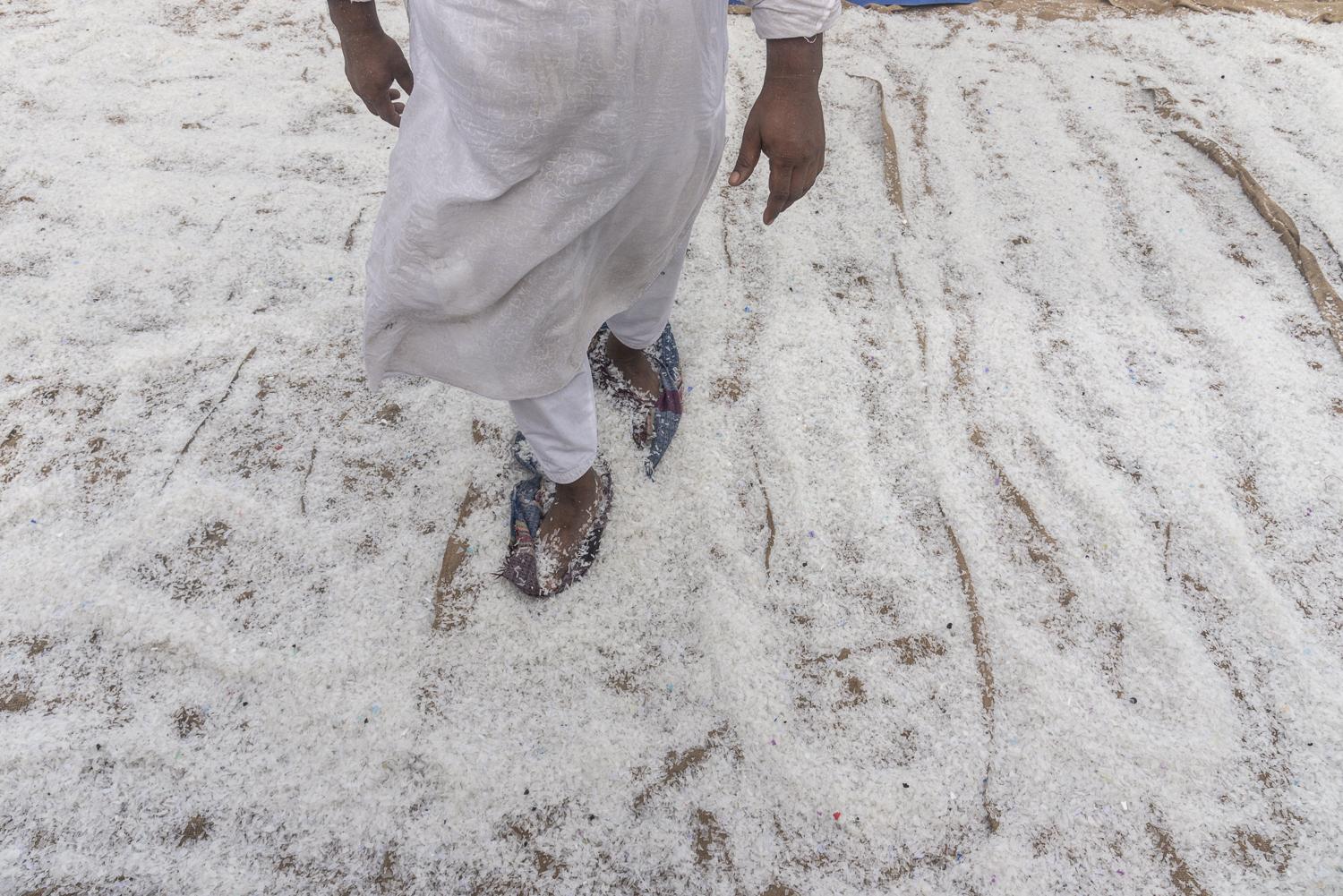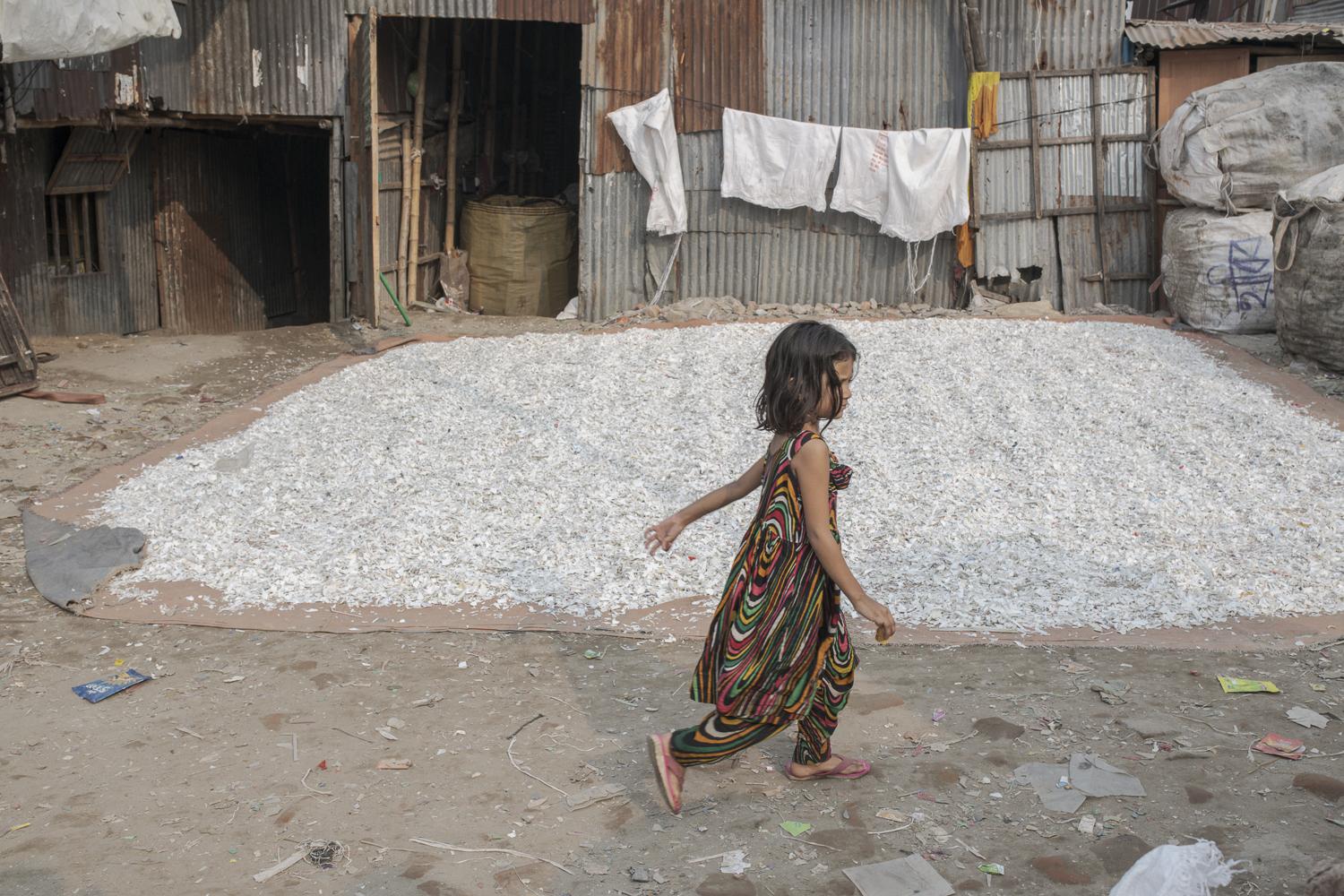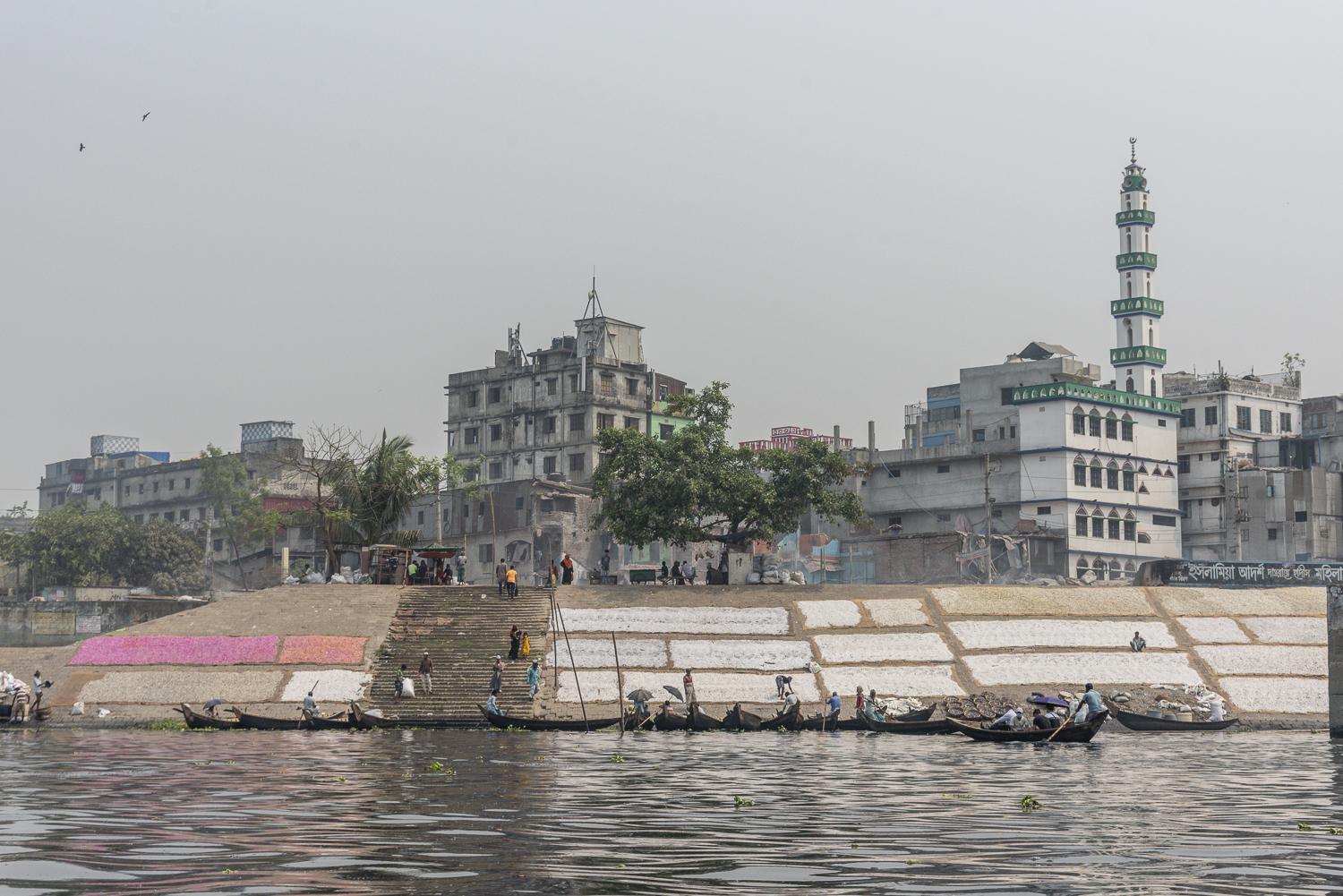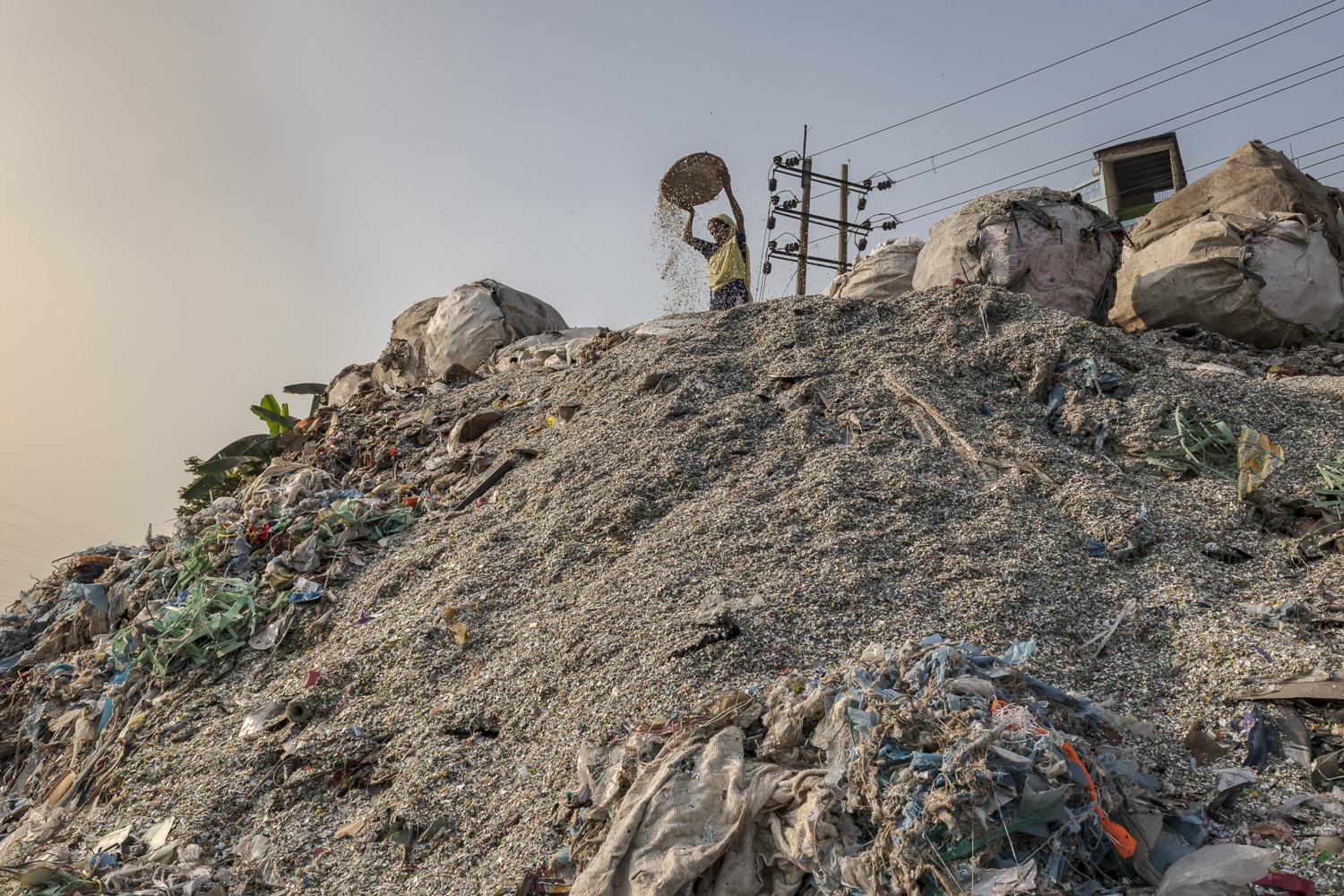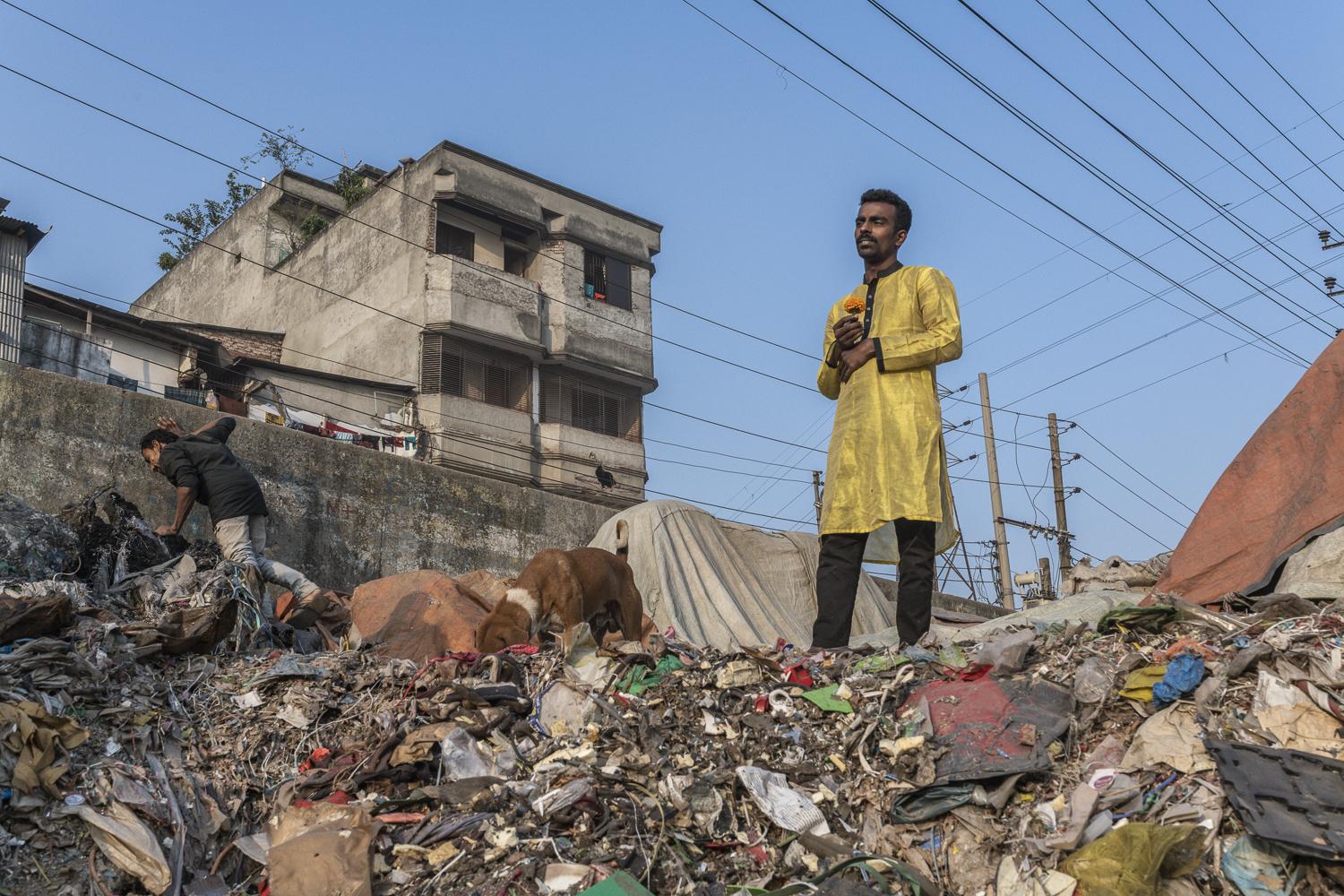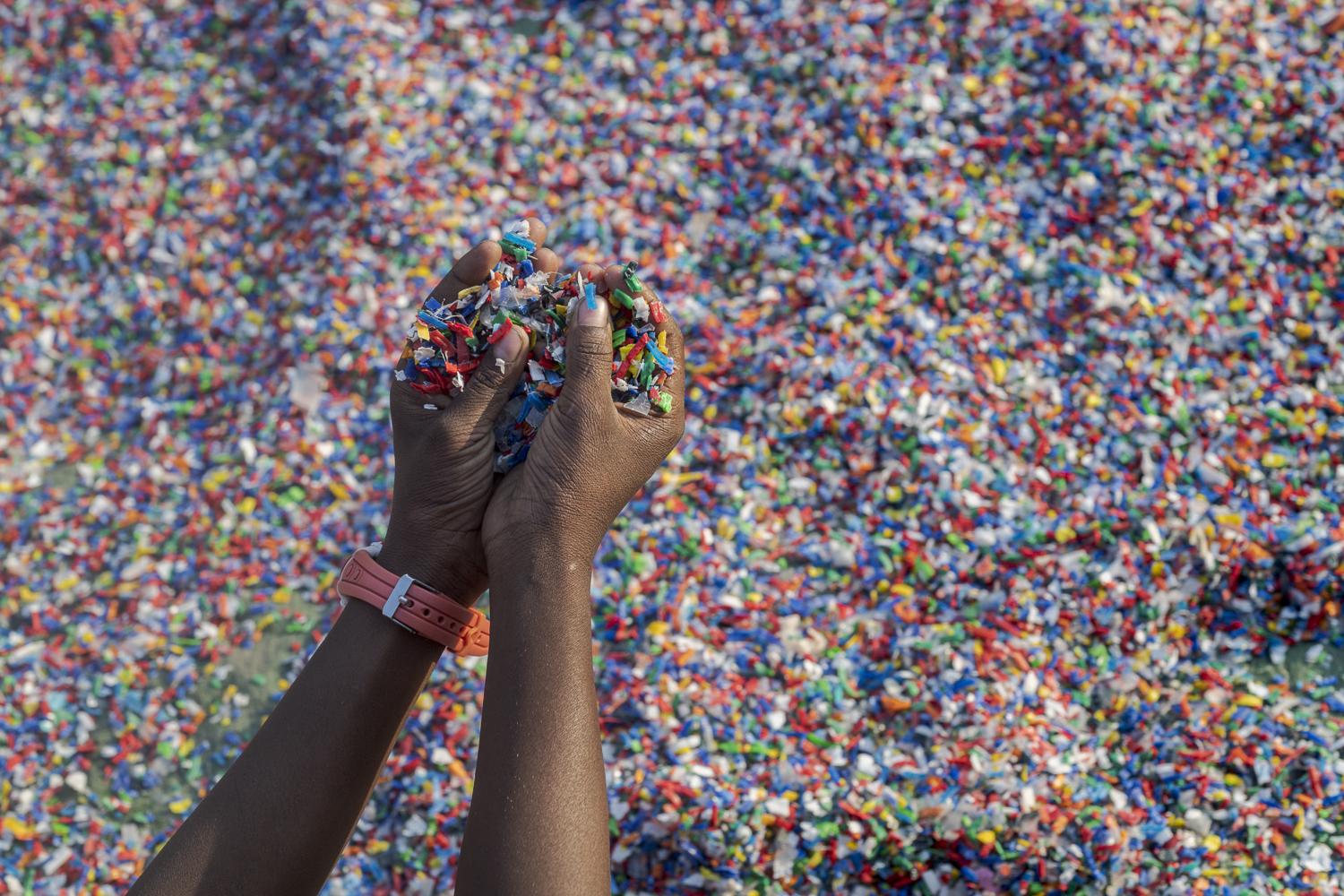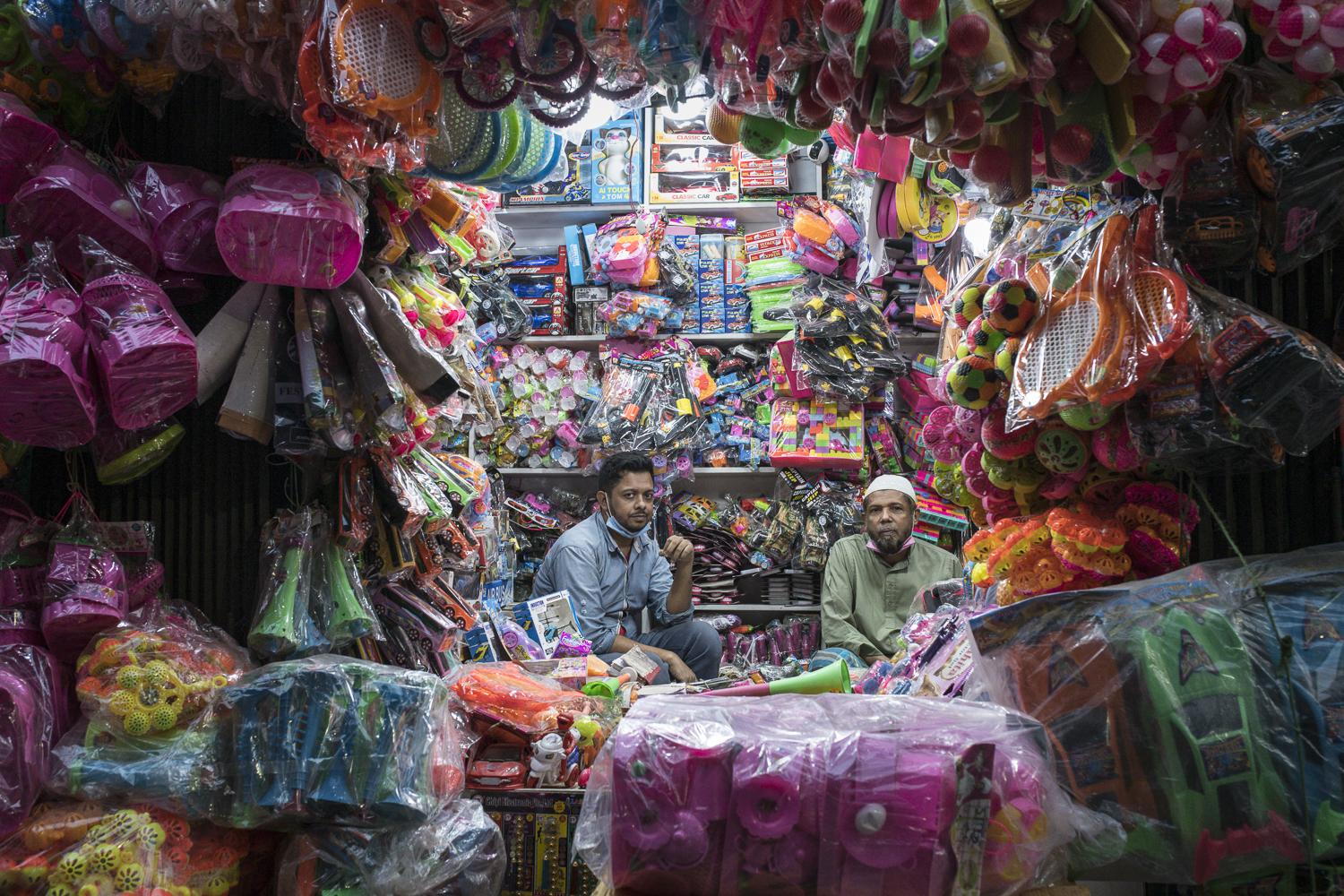Dangerous job of recycling
The plastic recycling business in Dhaka has turned entire neighborhoods into open dumps that threaten not only the environment, but also thousands of families living around them. Thousands of people work in Dhaka recycling the 650 tons of garbage generated every day. In these places, plastic is a small treasure that is collected, separated according to its type, cut into small flakes, and washed in the waters of Buriganga river, whose ecosystem is basically dead when it reaches Old Dhaka after traveling 2,500 kilometers from the ice of the Himalayas.
Due to the bad waste management practices of the government, the industries and the society, the basic rights and health of 168 million people in Bangladesh are at risk. The water they use, the land they work and even the air they breathe are becoming more polluted every day. Different studies such as the "World Air Quality Report"(IQair, 2022) place the country as one of the most polluted in the world and Dhaka as the city with the worst air quality on the planet.
In Bangladesh, the recycling business has grown so much in the last decade that it has become the country's twelfth largest export for a total of $1 billion, and the source of informal employment for approximately five million people. Despite this recycling business being a source of income for many people, guaranteeing them between 2-3 USD per day, they live in a situation of extreme poverty and without access to basic health services.
In addition, since the start of the pandemic, the consumption of single-use plastic has increased significantly, which has led to greater amounts of plastic circulating the streets of the city, including materials considered biologically contaminated, despite the international recommendations for handling and removing of pathological waste.
Due to the urgent need for economic growth and new sources of employment, Bangladesh refuses to look at the negative environmental effects of its industrialization, turning the landscape of its ancient plains and rivers into mountains of garbage and sewage, where millions of families live daily, becoming collateral and invisible victims of the excessive use and waste of plastics in "modern life".
View to the Islamabag slum from the Buriganga river, one of the most important in the country due to its extension, and from which nearly 200 thousand people are supplied. In 2016, this river that rises in the Himalayan mountains was declared in extreme danger due to industrial and human overexploitation, which for years has dumped all kinds of toxic waste into it until it became a mirror of black waters almost lifeless. Dhaka, Bangladesh, November 29, 2021. Dhaka Bangladesh
A recycling man in Dhaka's Baunya-Badh slum carries a huge, heavy bag of different typed of plastics on his head. The work of the recyclers requires a great physical effort from when they go out to the streets to collect plastics products already used until when they reinsert these plastics back into the market for sale. dhaka, Bangladesh, November 25, 2021. Dhaka Bangladesh
A recycling man in Dhaka's Baunya-Badh slum carries a huge, heavy bag of different typed of plastics on his head. The work of the recyclers requires a great physical effort from when they go out to the streets to collect plastics products already used until when they reinsert these plastics back into the market for sale. Dhaka, Bangldesh, November 25, 2021.
A large bag with thousands of biologically contaminated waste such as needles, syringes and other medical plastics have found a place in the plastic recycling business in Dhaka. Despite the fact that the treatment and disposal of these wastes have to follow established international standards, in Bangladesh they have become another source of income due to the plastic materials of which they are made, even if this implies great health risks for the plastic workers. November 29, 2021. Dhaka Bangladesh
A large bag with thousands of biologically contaminated waste such as needles, syringes and other medical plastics have found a place in the plastic recycling business in Dhaka. Despite the fact that the treatment and disposal of these wastes have to follow established international standards, in Bangladesh they have become another source of income due to the plastic materials of which they are made, even if this implies great health risks for the plastic workers. November 29, 2021. Dhaka Bangladesh
Two men work cutting plastics on machines in a small makeshift warehouse in Old Dhaka. Thousands of people work and live in these warehouses who spend days and nights working to try to obtain as much plastic as possible. Dhaka, Bangladesh, December 01, 2021. Dhaka Bangladesh
A woman separates the elastic bands and the needles of the syringes previously cut in the form of “flakes” directly with her hands to facilitate their recycling. In the slums of Old Dhaka there are buildings that have been adapted as small informal recycling factories. Inside, thousands of men and women carry out unhealthy jobs without any type of protection, control or safety standard, putting directly their health at risk. Dhaka, Bangladesh, December 13, 2021. Dhaka Bangladesh
Portrait of one of the workers in a warehouse dedicated to separating biologically contaminated materials. Dhaka, Bangladesh, December 01, 2021. Dhaka Bangladesh
Lipi works separating the scales from the plastic syringes, her job is high risk due to the materials she works with, biologically contaminated waste. Usually it is women who do these jobs. Dhaka Bangladesh
Sumun works with a group of women recycling biological waste in a small informal factory in Old Dhaka. Her job is to separate the elastics and needles from the syringes that were cut into flakes. Most of these women are also mothers and housewives, who work in these places from Saturday to Thursday for an approximate salary of 2 USD a day. Without any type of economic security, these women put their health and that of their families at risk being in direct contact with this type of biological waste. Dhaka Bangladesh
A woman separates the elastic bands and the needles of the syringes previously cut in the form of “flakes” directly with her hands to facilitate their recycling. In the slums of Old Dhaka there are buildings that have been adapted as small informal recycling factories. Inside, thousands of men and women carry out unhealthy jobs without any type of protection, control or safety standard, putting directly their health at risk. December 01, 2021.
A group of men and women work in one of the warehouses where biological plastic waste is being separated by women without any type of care or safety. Dhaka, Bangladesh, November 30, 2021.
Alom shows the burns that an accident caused on his body. He is a laborer who cleans plastic in the polluted waters of the Buriganga River in Dhaka. The salary he earns with his wife is used to pay the rent for their small room where they live and to buy the rice they eat every day. Dhaka, Bangladesh, December 13, 2021. Dhaka Bangladesh
Portrait of a family living in the Azimpur neighborhood of Old Dhaka. Families like this live in overcrowded neighborhoods where recycling is the main source of employment. Dhaka, Bangladesh, December 13, 2021. Dhaka Bangladesh
Alom shows the burns that an accident caused on his arm. He is one of five million people working in the plastic recycling industry in Bangladesh. Alom survives on two dollars a day and does not have health insurance or any other type of social security. Dhaka, Bangladesh, December 13, 2021.
A mother with her son in the recycling business where she works. her son is sick and she has no one to leave him with. Many women work while their children grow up in the slums of Dhaka amid violence and poverty. Dhaka, Bangladesh, November 25, 2023.
A family is pictured inside their home in Old Dhaka. Thousands of families like this one live crowded in old buildings in the city. Their houses have become plastic recycling factories. Because of this, they live surrounded by the pollution that these small factories produce. Dhaka, Bangladesh, December 13, 2021. Dhaka Bangladesh
A family takes a break in their room before going back to work in the recycling factories. Many of the buildings in Islambag, the Old Dhaka slum where the recycling industry is based, are at the same time factories and homes. Thousands of families live there in very poor and overcrowded conditions. December 13, 2021. Dhaka Bangladesh
Two women who work in a small recycling factory in the center of Old Dhaka rest on a mountain of plastics waiting to be processed by themselves. Dhaka Bangladesh
Aerial view of Banani Lake in the city of Dhaka in which bodies of dead fish could be seen floating between plastic waste. The quality of water in Bangladesh is very poor and, according to a WHO report, 40 million inhabitants are exposed to dangerous and toxic substances such as arsenic, that can cause multiple diseases.Dhaka, Bangladesh, December 14, 2021. Dhaka Bangladesh
A man walks on a bridge, in the background a brick factory generating carbon dioxide. Bangladesh has become one of the countries with the worst air quality. In Dhaka, the capital, nearly 30 million people who live in it and the periphery breathe the suspended particles generated daily by millions of companies, with this the probability of mortality from respiratory diseases increases considerably. Dhaka, Bangladesh, November 20, 2021. Dhaka Bangladesh
A small child is standing on an improvised garbage can in the Gulshan neighborhood, one of the richest in the city. In this place on the shore of the lake, people burn plastic waste every day, turning that toxic smoke into daily pollution. Dhaka, Bangladesh, Dhaka Bangladesh
A man in the middle of the evening washes the "flakes" of the previously cut and selected plastics in the dirty waters of the Buriganga River. The textile and leather factories and the inhabitants’ wastes cause that this important river that rises 2,500 km above the Himalayan Mountains, he is practically dying when he arrives in Old Dhaka. November 30, 2021.
A man, a child and a couple in the background search for materials to recycle in an open dump in the city of Dhaka.Bangladessh, decenber 12, 2021. Dhaka Bangladesh
A man burns plastic garbage on the shore of Banani Lake, in the Gulshan area, one of the richest neighborhoods in Dhaka. The contamination of bodies of water is widespread throughout all the city and don’t make distinctions for social classes. December 14, 2021.
A rickshaw driver, the most common means of transportation in Bangladesh, watches the sun set over the polluted Buriganga River. What looks like a beautiful sunset is actually a manifestation of the high rate of pollution in the air. Making this city one with the worst air quality in the world. Dhaka, Bangladesh, November 21, 2021. Dhaka Bangladesh
A man washing plastic waste on the bank of the Buriganga River. Dhaka, Bangladesh, November 21, 2021. Dhaka Bangladesh
A woman travels in a small vehicle used to transport the materials collected for the day. On Alam Gonj Street in Old Dhaka, all kinds of used vehicles are used daily to transport materials that can be recycled. The recycling business represents an income for an important amount of people in Bangladesh. November 30, 2021. Dhaka Bangladesh
A woman and her daughter look out the window of a building in the Old Dhaka neighborhood. Thousands of families live overcrowded in this type of construction. Dhaka, Bangladesh, April 14, 2021.
A woman and her daughter look from inside their house as their building is being destroyed. In this type of housing in the Old Dhaka neighborhood, thousands of people live overcrowded in the midst of constant dangers. Dhaka, Bangladesh, April 14, 2021. Dhaka Bangladesh
A girl looks out from the ruins of her house in the Islamabag neighborhood in Old Dhaka where thousands of people work recycling other people's rubbish. Dhaka, Bangladesh, April 13, 2022. Dhaka Bangladesh
A group of people rummage in the waste of an open dump in Old Dhaka, a neighborhood in the capital of Bangladesh. Used as improvised garbage dumps, these sites are located in the historic heart of the city and daily concentrate dozens of people who search in the garbage for materials that they can sell in recycling business. Tons of plastics are also burned here whose dust the inhabitants breathe daily, increasing the possibility of contracting respiratory diseases. July 03, 2021. Dhaka Bangladesh
A couple of children collect recyclable materials from the garbage on the streets of Dhaka. In Bangladesh, according to UNICEF, 1.7 million children are obliged to work. November 30, 2021. Dhaka Bangladesh
Some children from the Old Dhaka neighborhood play on a mountain of garbage and plastic waste from recycling that have accumulated for years on the banks of the Buriganga River. Dhaka Bangladesh
A man who works separating and cleaning plastic "flake" is standing in a sea of this material. Dhaka, Bangladesh, November 23, 2021. Dhaka Bangladesh
A rickshaw driver, the most common means of transportation in Bangladesh, watches the sun set over the polluted Buriganga River. What looks like a beautiful sunset is actually a manifestation of the high rate of pollution in the air. Making this city one with the worst air quality in the world. Dhaka, Bangladesh, November 21, 2021. Dhaka Bangladesh
A little girl runs and plays in the Baunya-Badh slum in Dhaka, one of the poorest areas of the city and where a significant part of its population works in the recycling sector. Baunya-Badh children grow up with few possibilities for studies and other forms of recreation in generally unhealthy environments. November 23, 2021. Dhaka Bangladesh
View of Showari Ghat in Old Dhaka, a jetty where plastic flakes’ recyclers wash and dry under the sun hundreds of kilos of these materials before selling them on the recycled plastics market. Dhaka, Bangladesh, March 28, 2021. Dhaka Bangladesh
A woman dumps “flakes” of solid plastic waste on the bank of the Buriganga River, the largest in Dhaka, Bangladesh. For years, the inhabitants of the area have dumped these micro-waste that could not be recycled, the amount has been so much that big mountains of plastic have formed that strongly pollute the ecosystem. November 29, 2021. Dhaka Bangladesh
A man in the middle of an outdoor garbage dump holds a flower in his hands; while his friend looks for recyclable materials in the trash. In these neighborhoods of the city of Dhaka they live in a precarious way, most of the people struggle to get a job, recycling is one of the few sources of income. Dhaka Bangladesh
A child's hands playing with polymer waste in the Old Dhaka neighborhood. These small flakes are scattered in the Buriganga River, causing even more pollution. Dhaka, Bangladesh, November 30, 2021. Dhaka Bangladesh
A couple of men sit in their toy store in Old Dhaka, very close to where they recycle the plastics used to make the products they sell. The plastics market encompasses a large chain of products that we all use daily at home, at work, in everyday life. Dhaka Bangladesh
Public Project
Dangerous job of recycling
1,370

